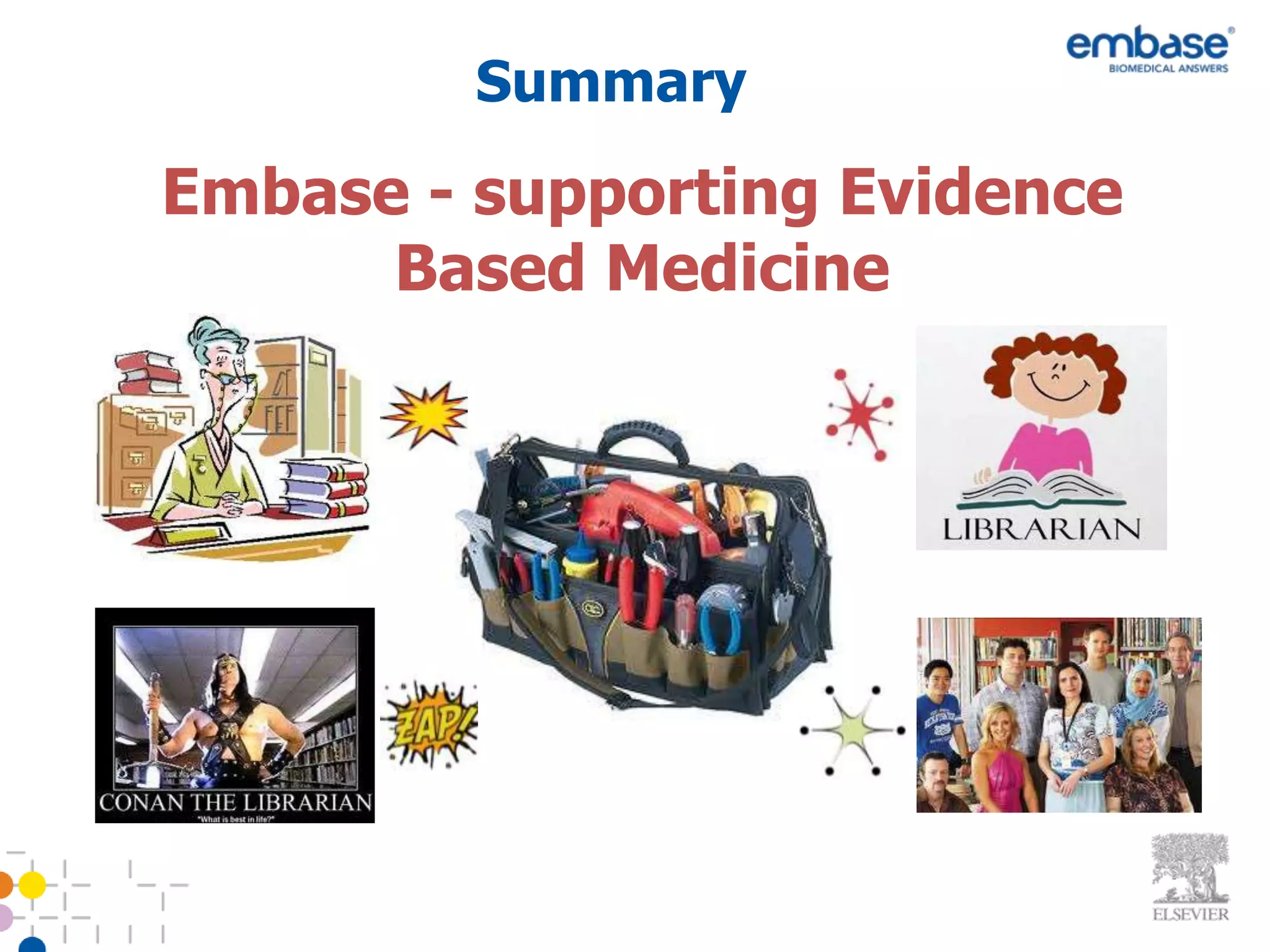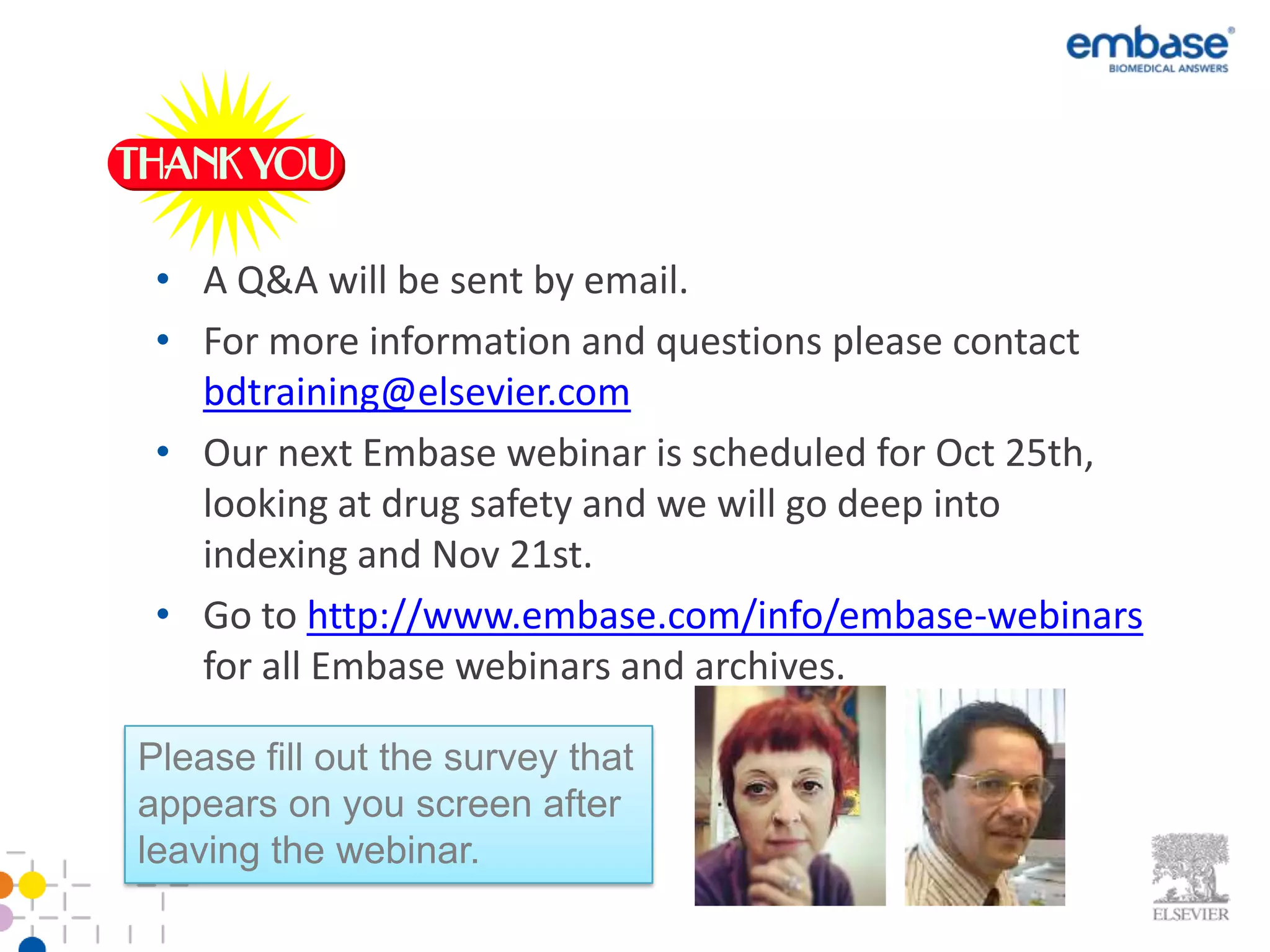The document is an overview of an Embase webinar focused on evidence-based medicine (EBM) and its practical application, highlighting the integration of clinical expertise with external research. Key topics include using EBM to formulate clinical questions, find clinical evidence through Embase, and understand the unique advantages of Embase in indexing randomized controlled trials. The presentation features case studies and discussions on various levels of evidence, searching strategies, and approaches to finding guidelines.
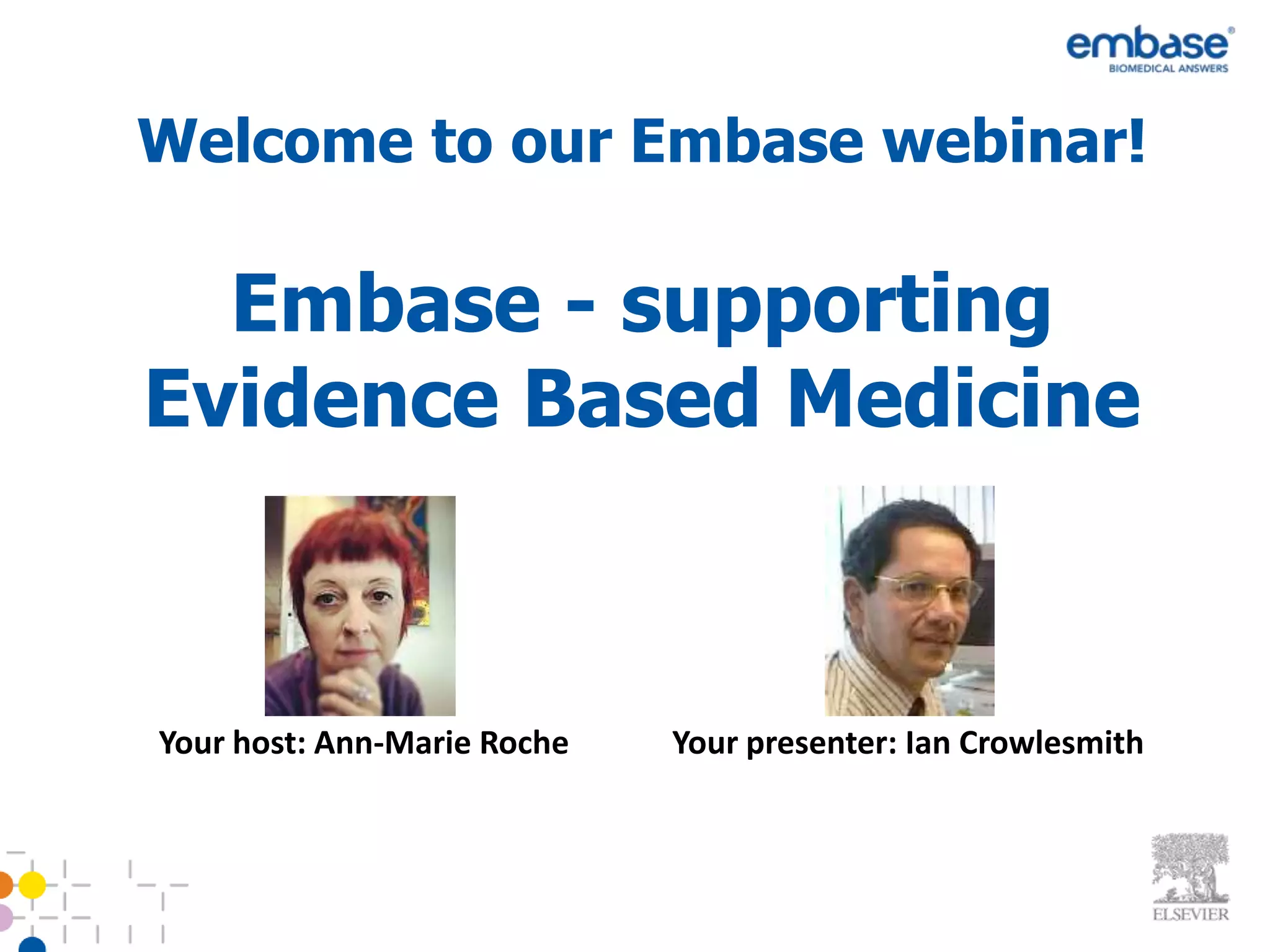
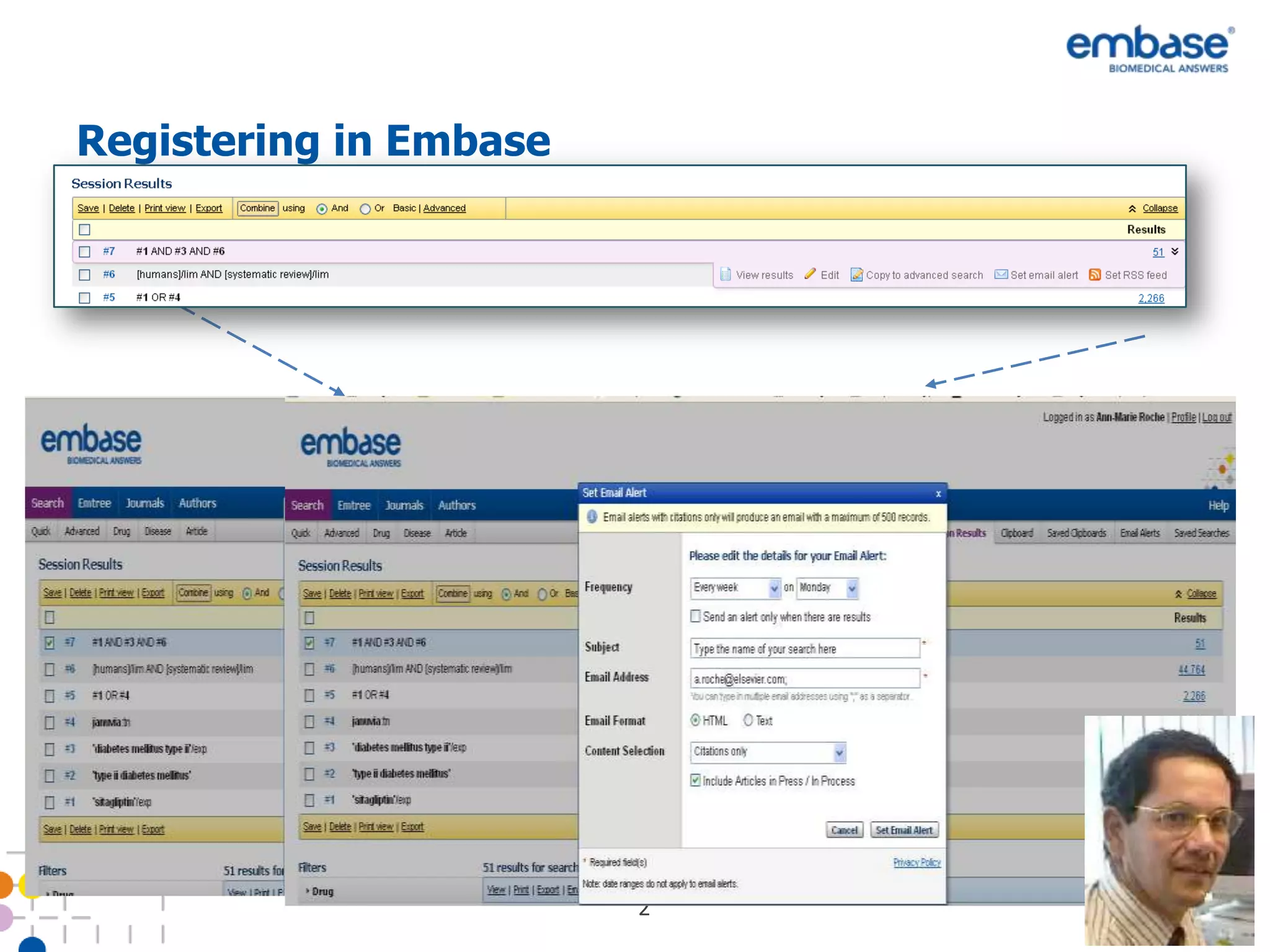
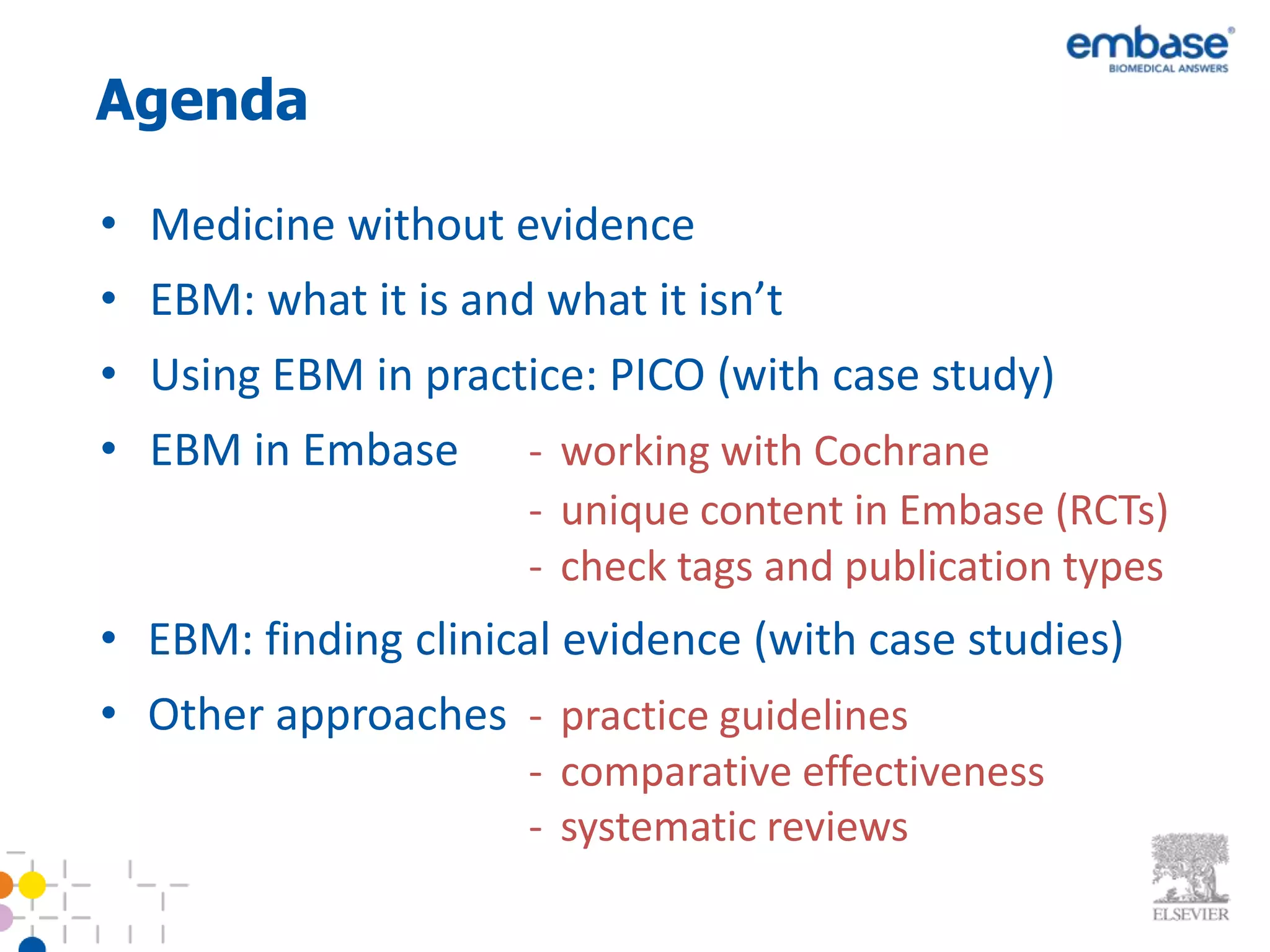
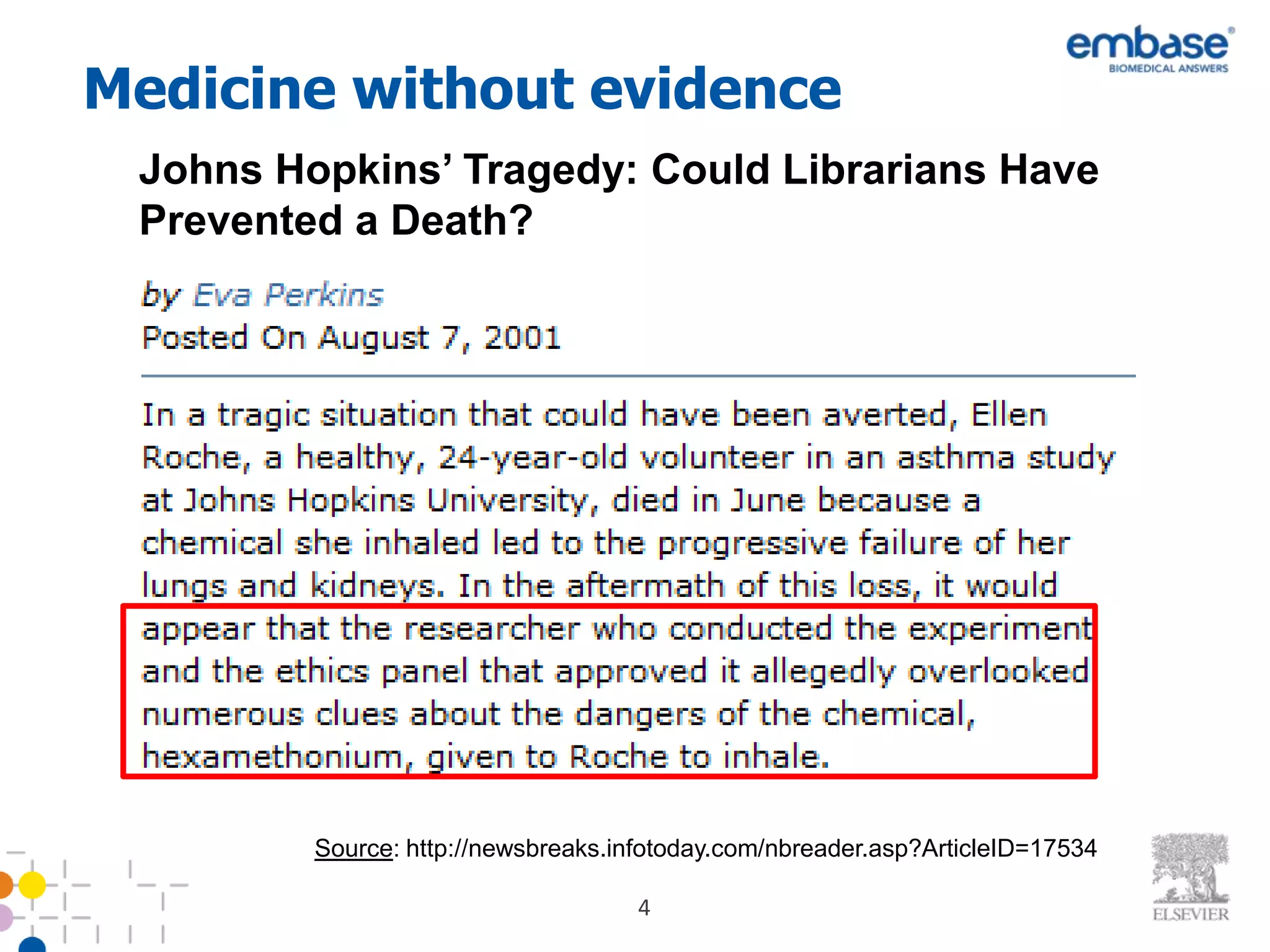
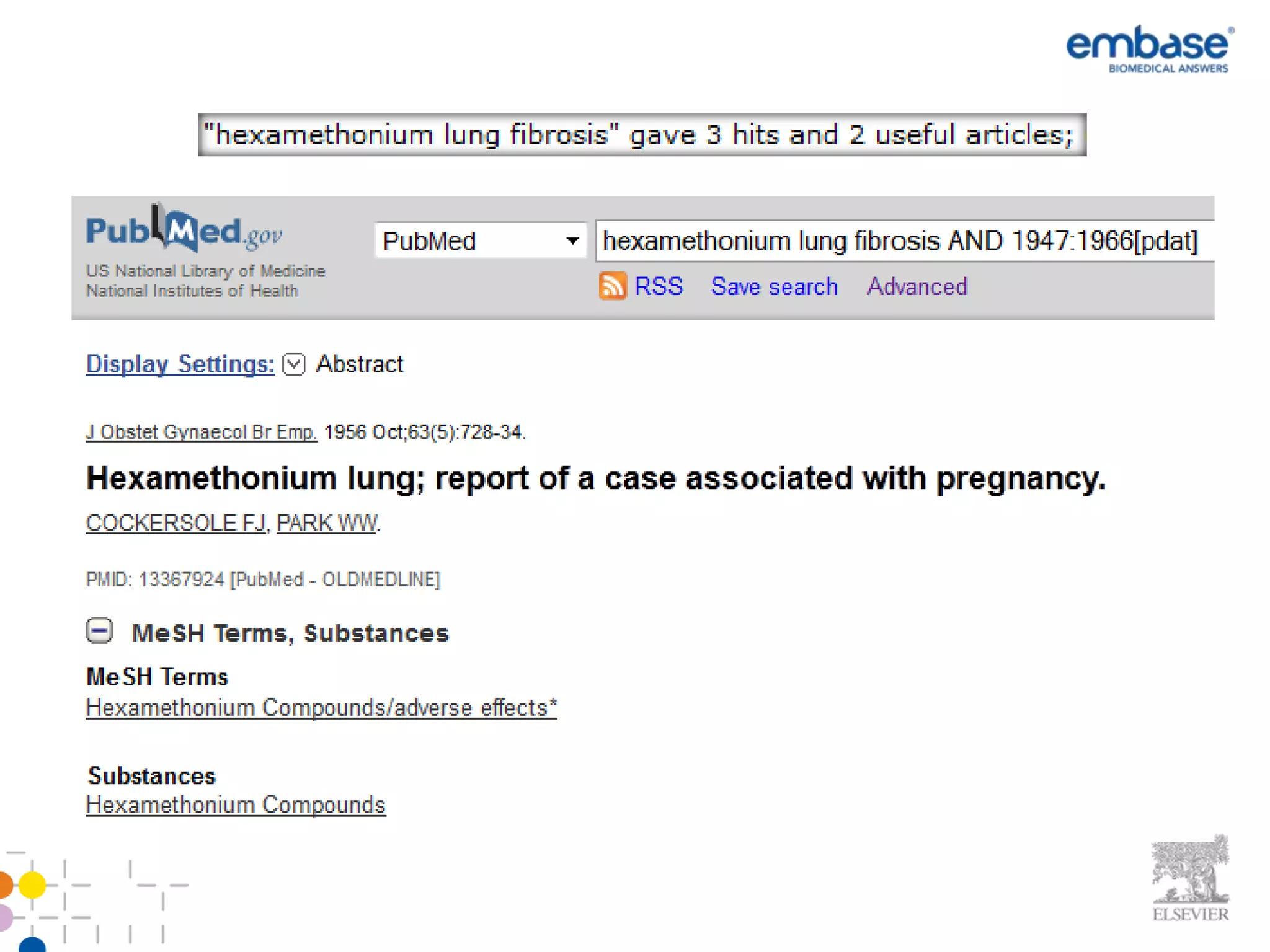
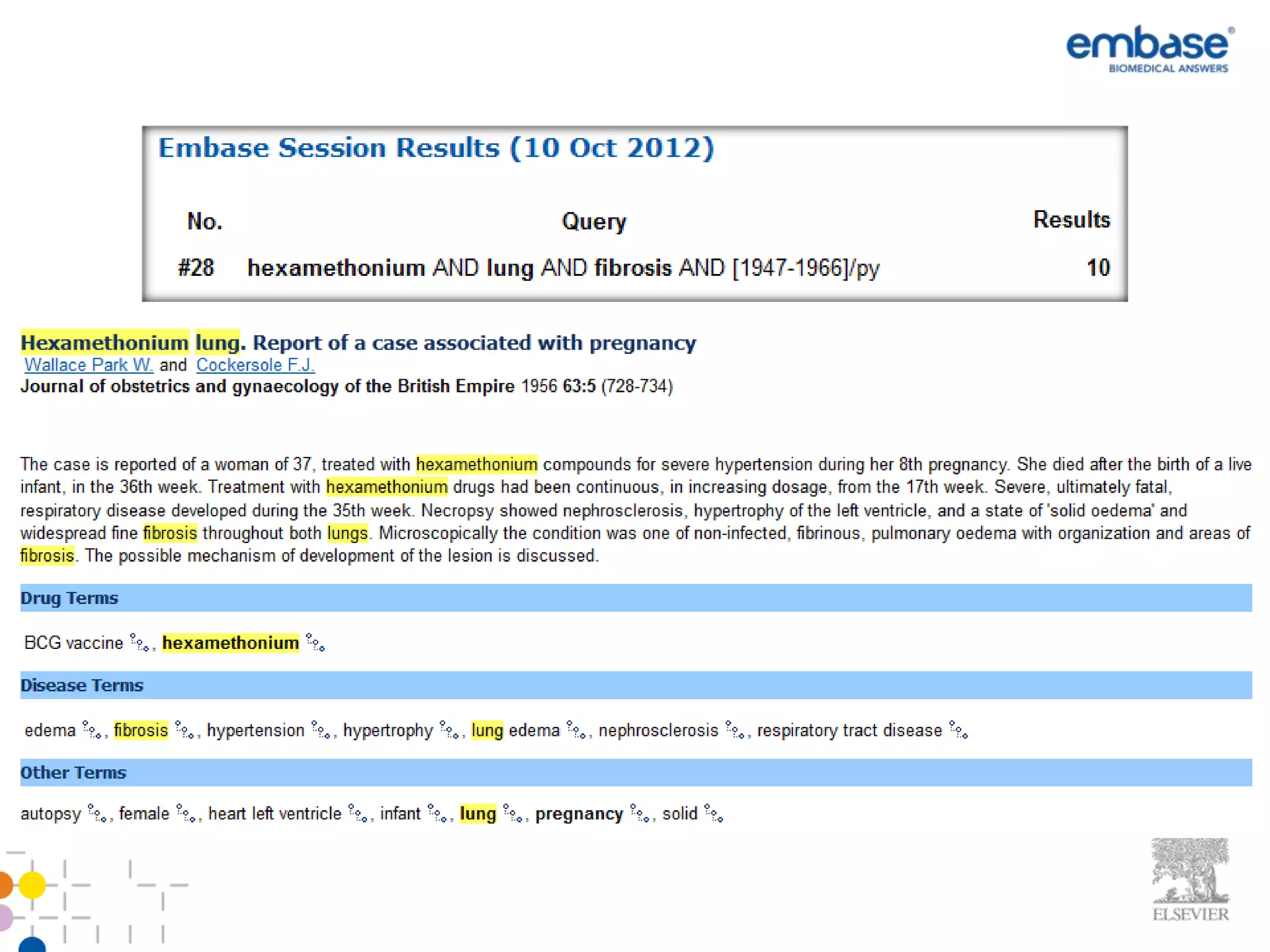
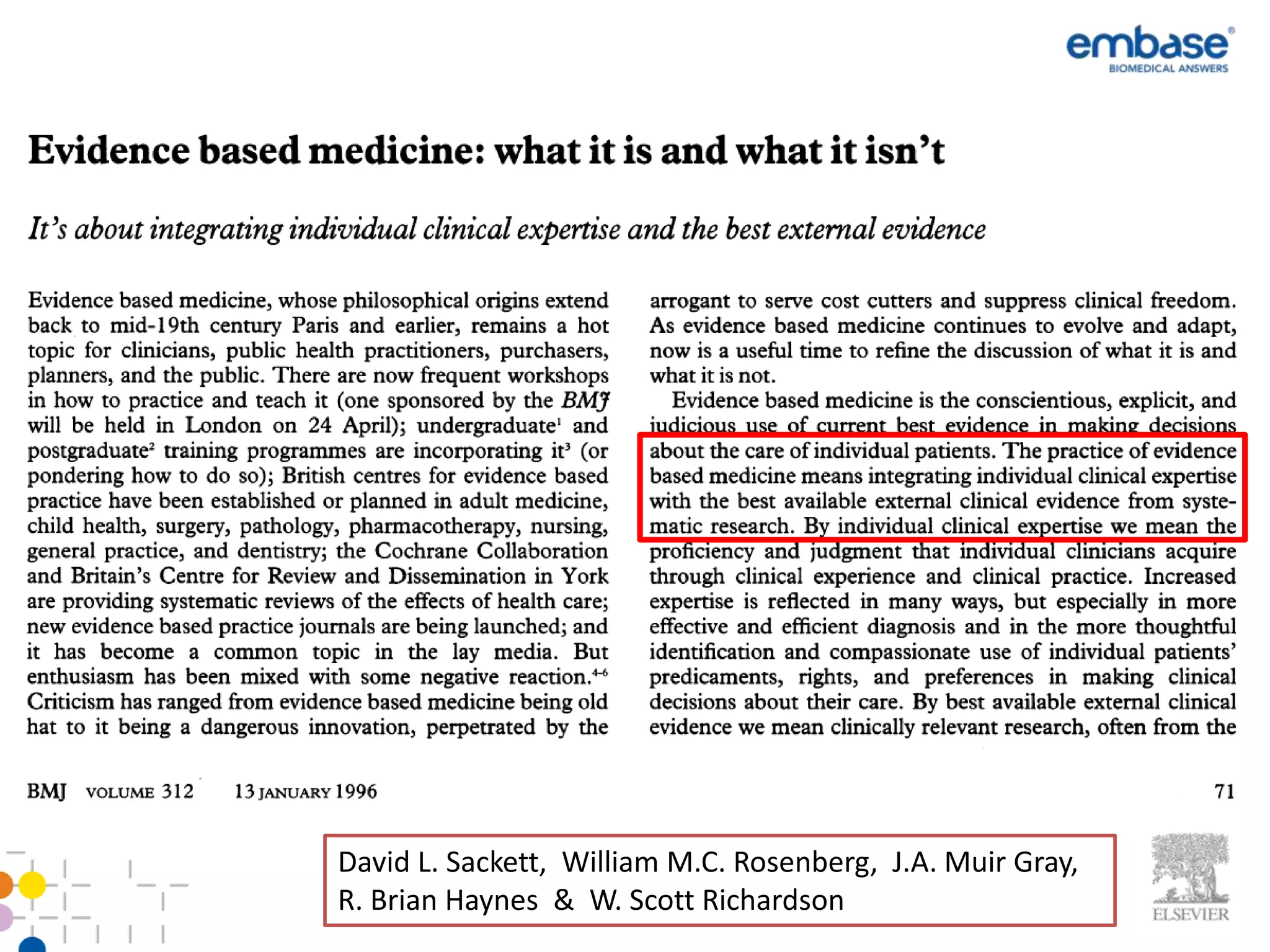
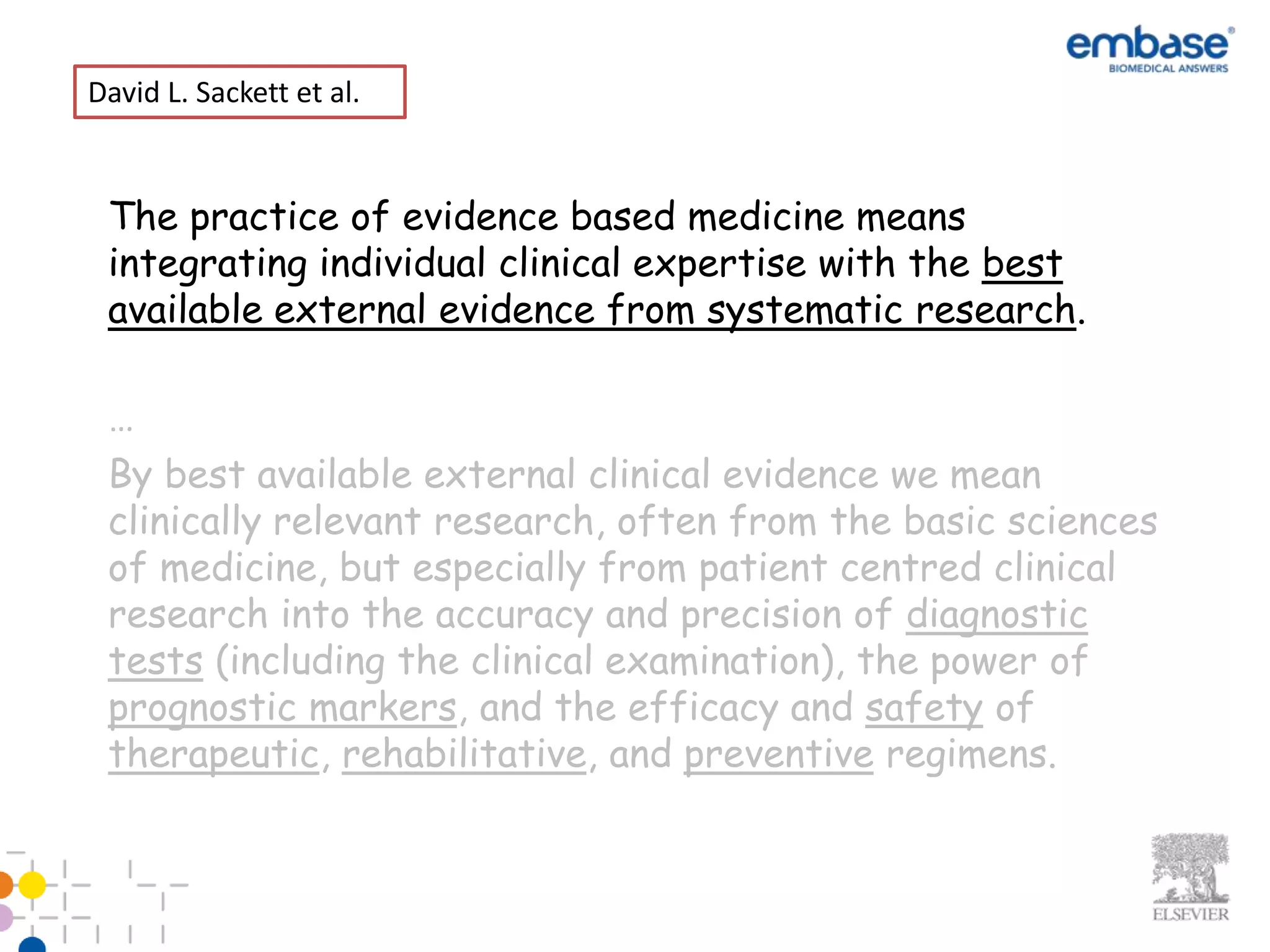
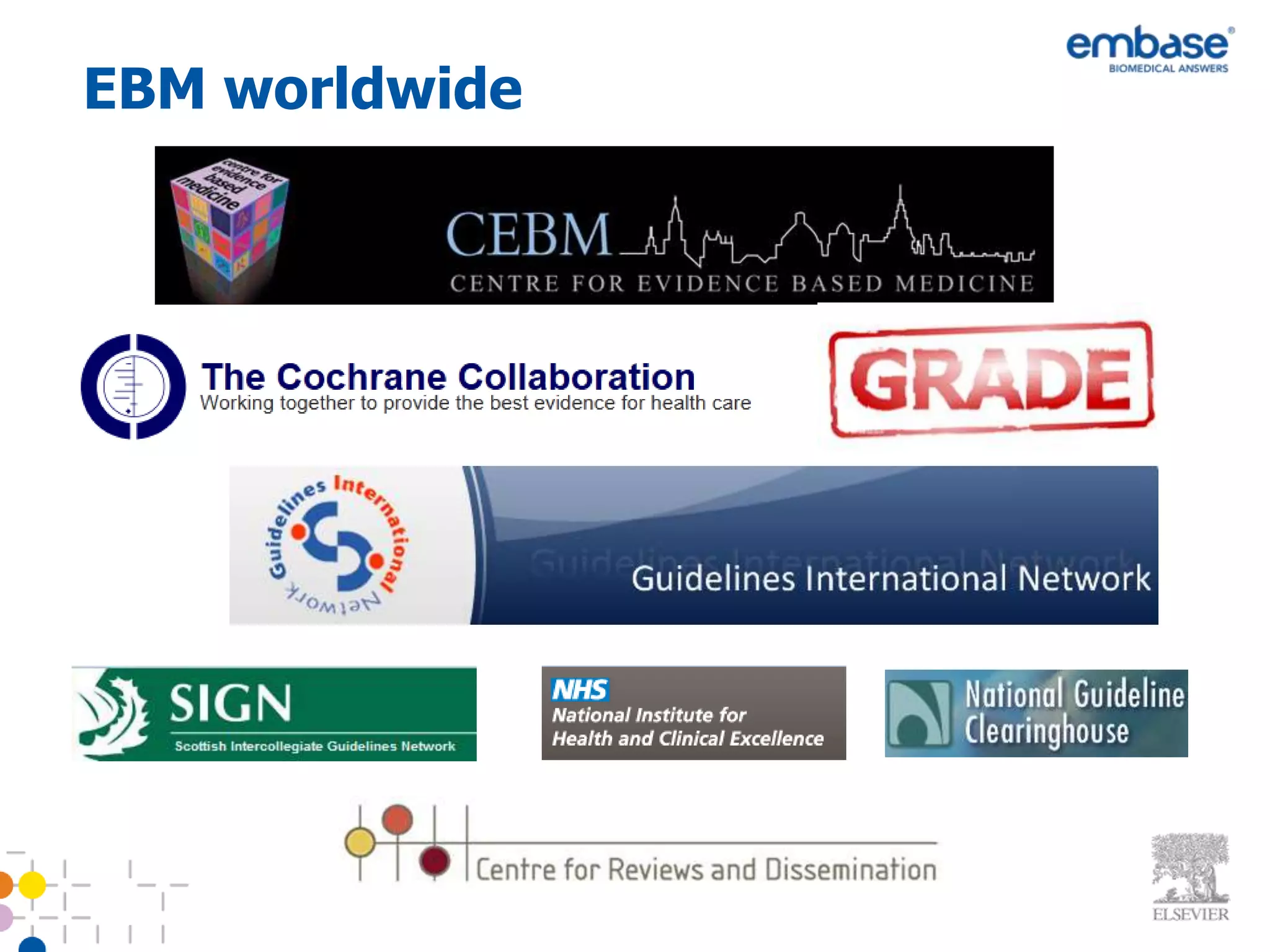
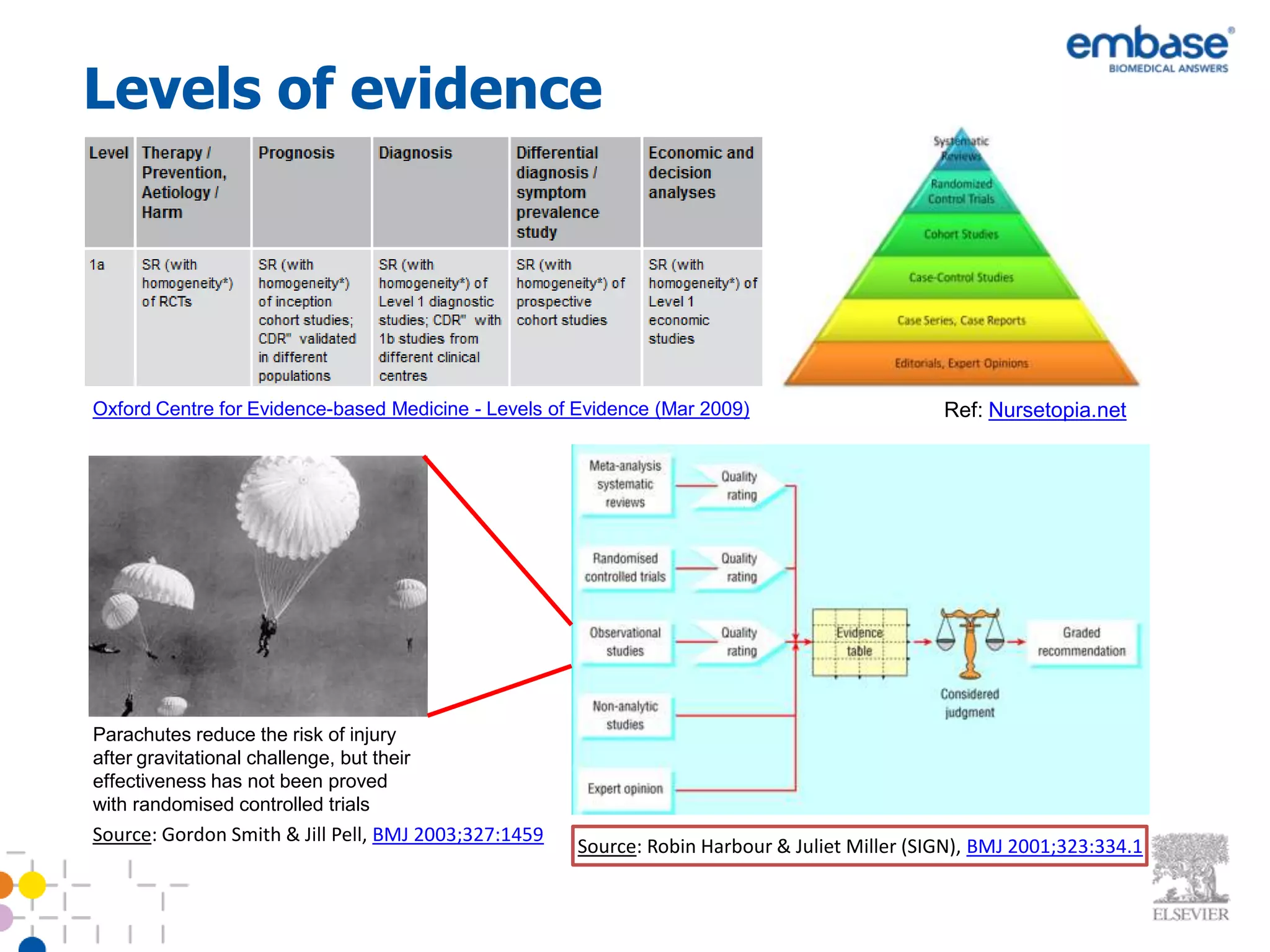
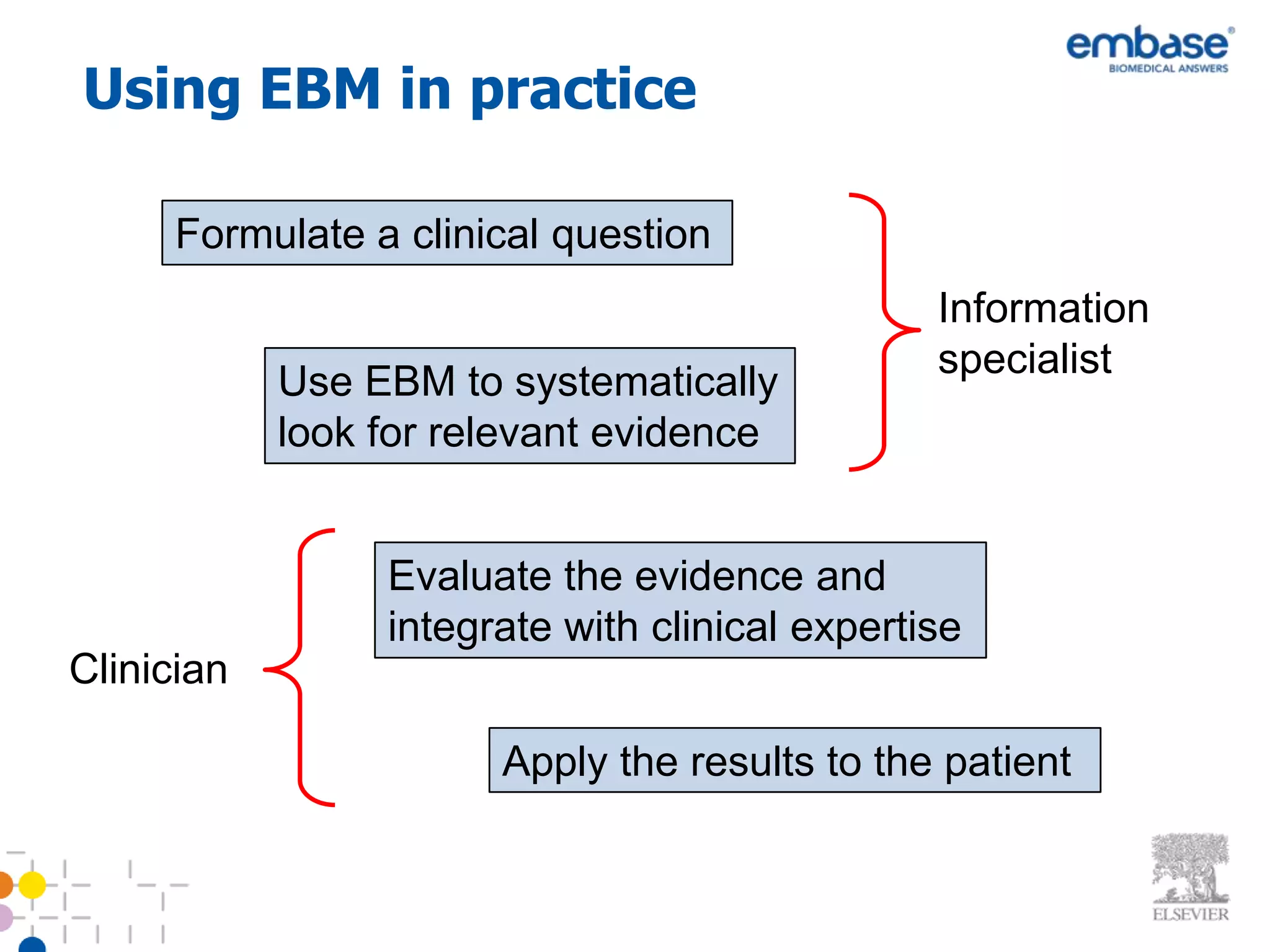
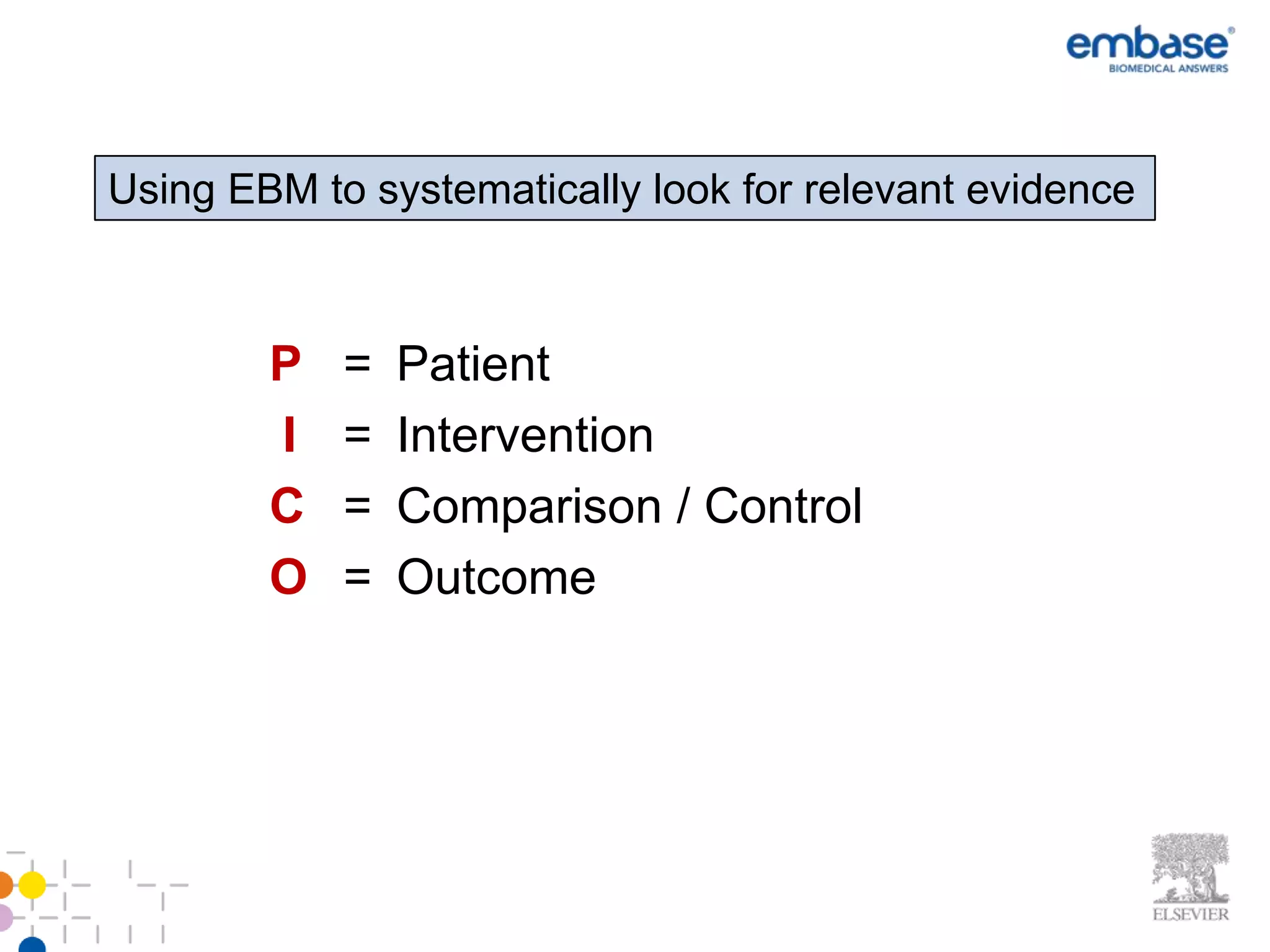
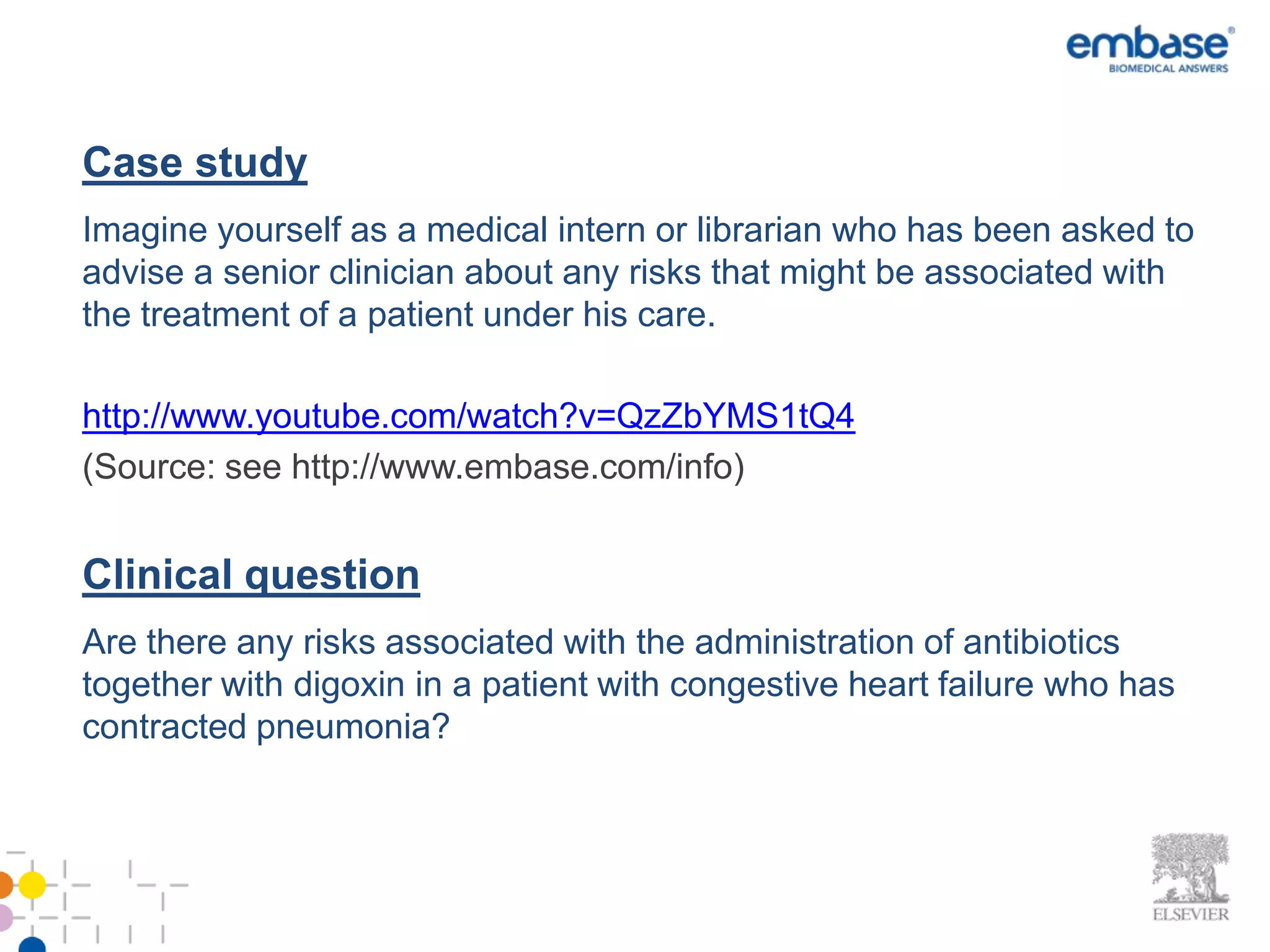
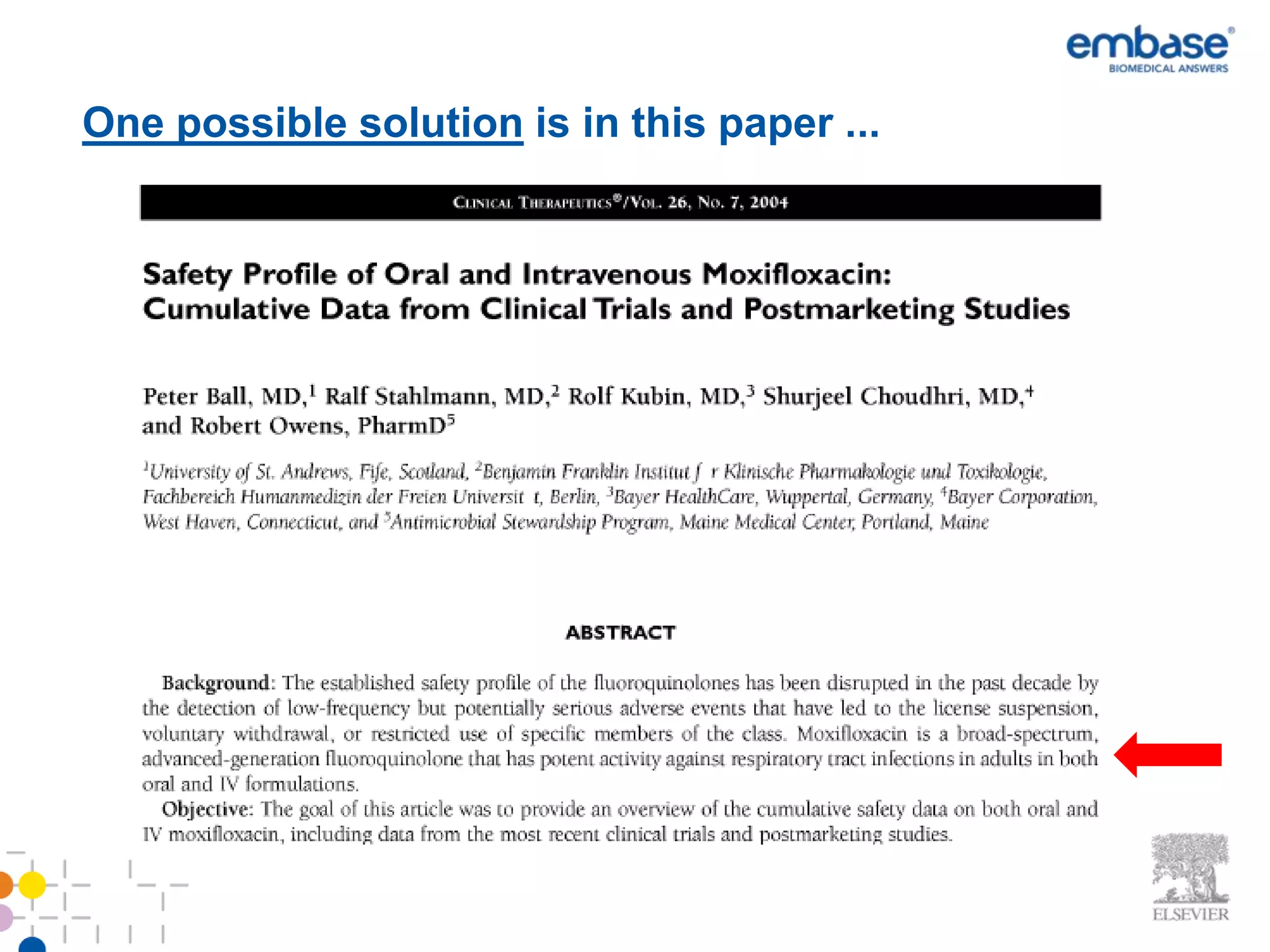
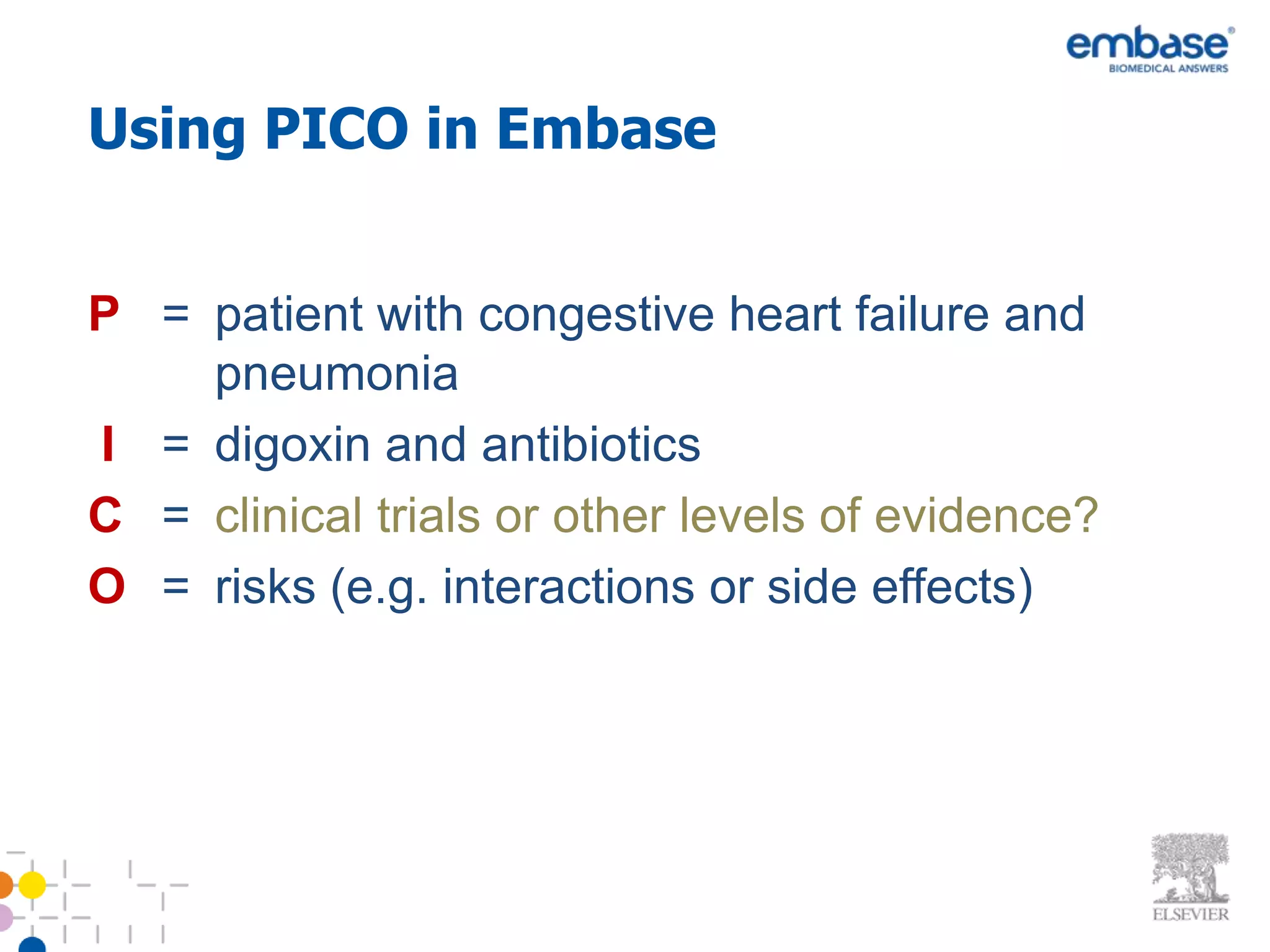
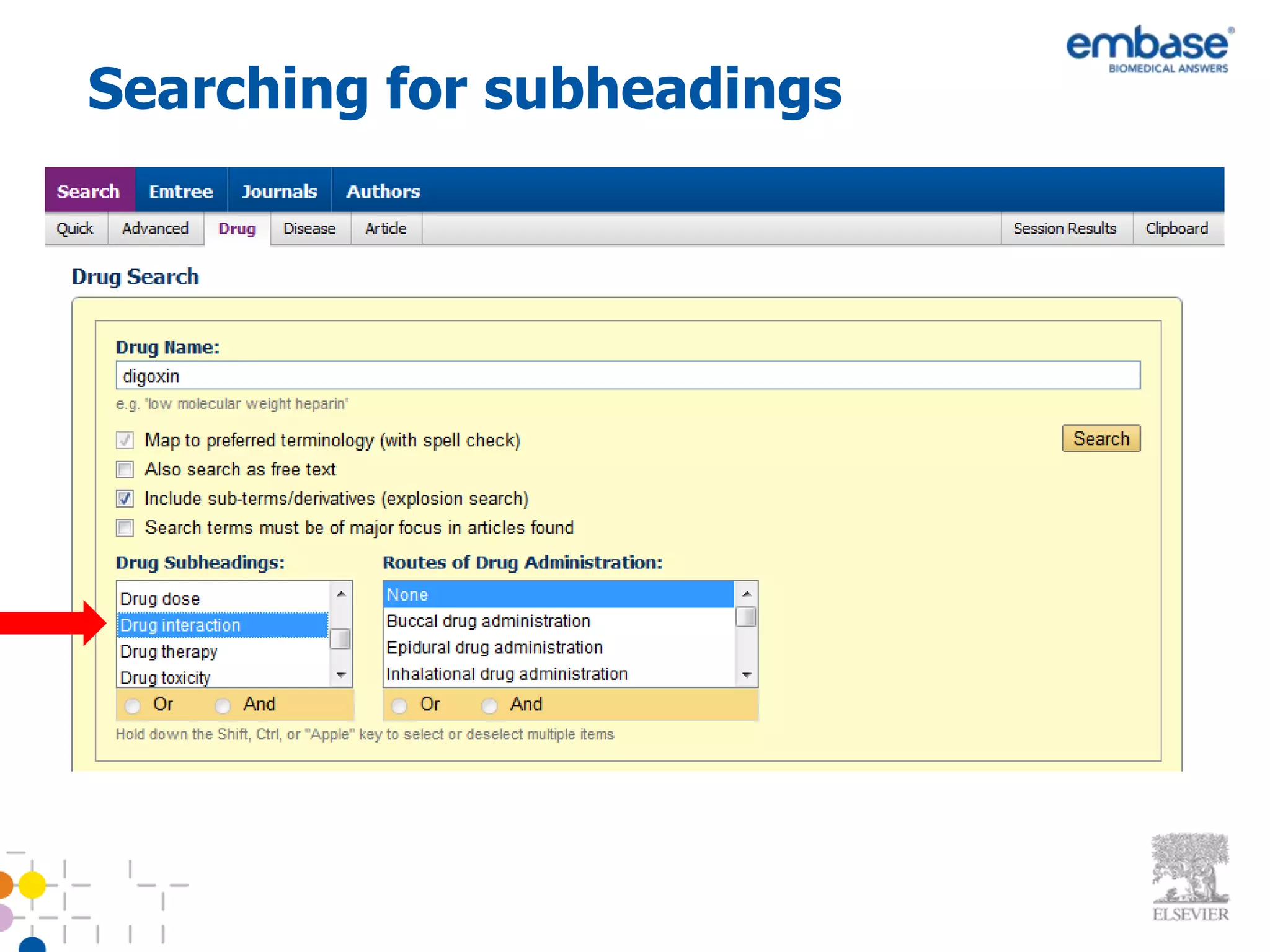
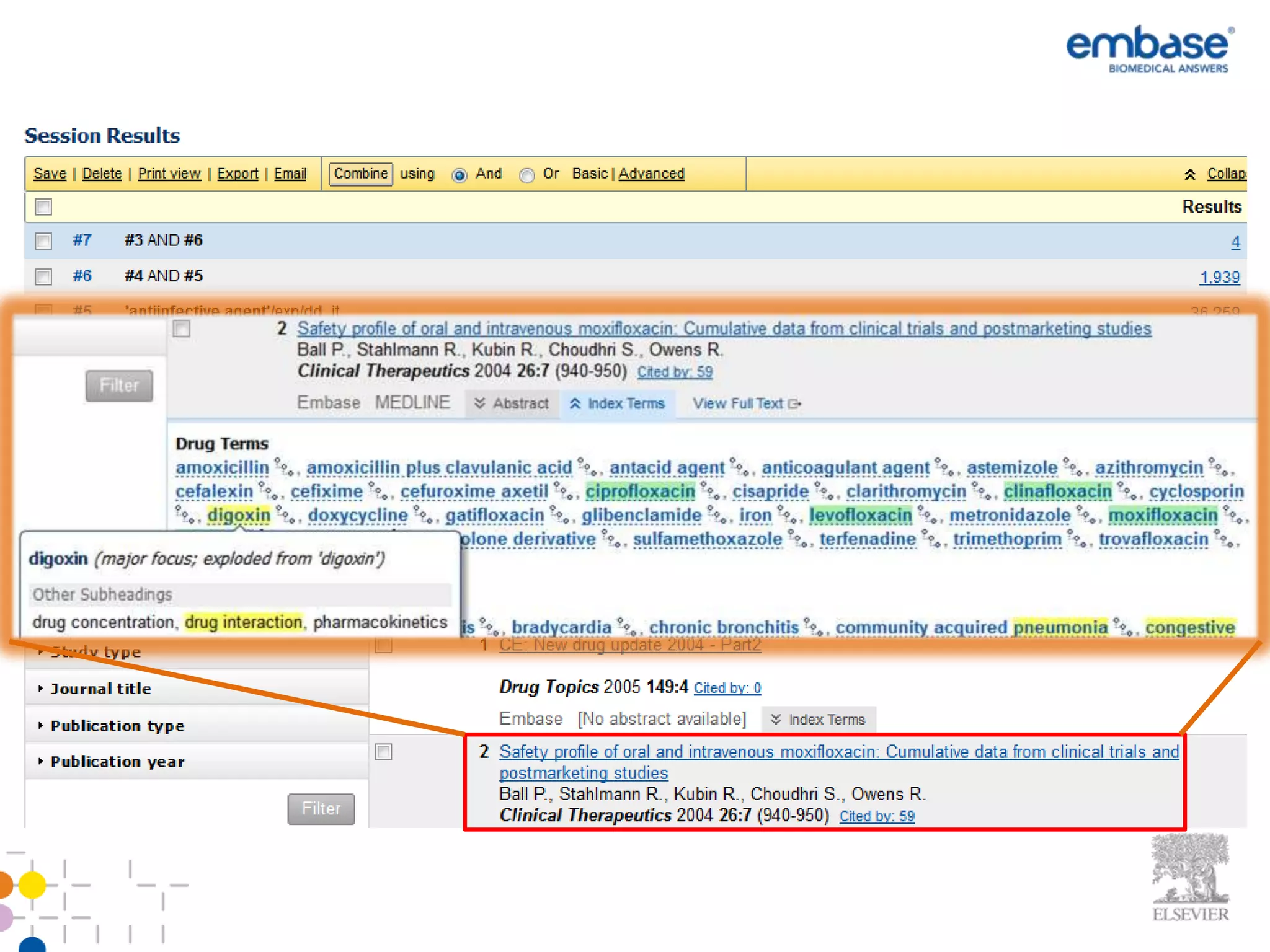
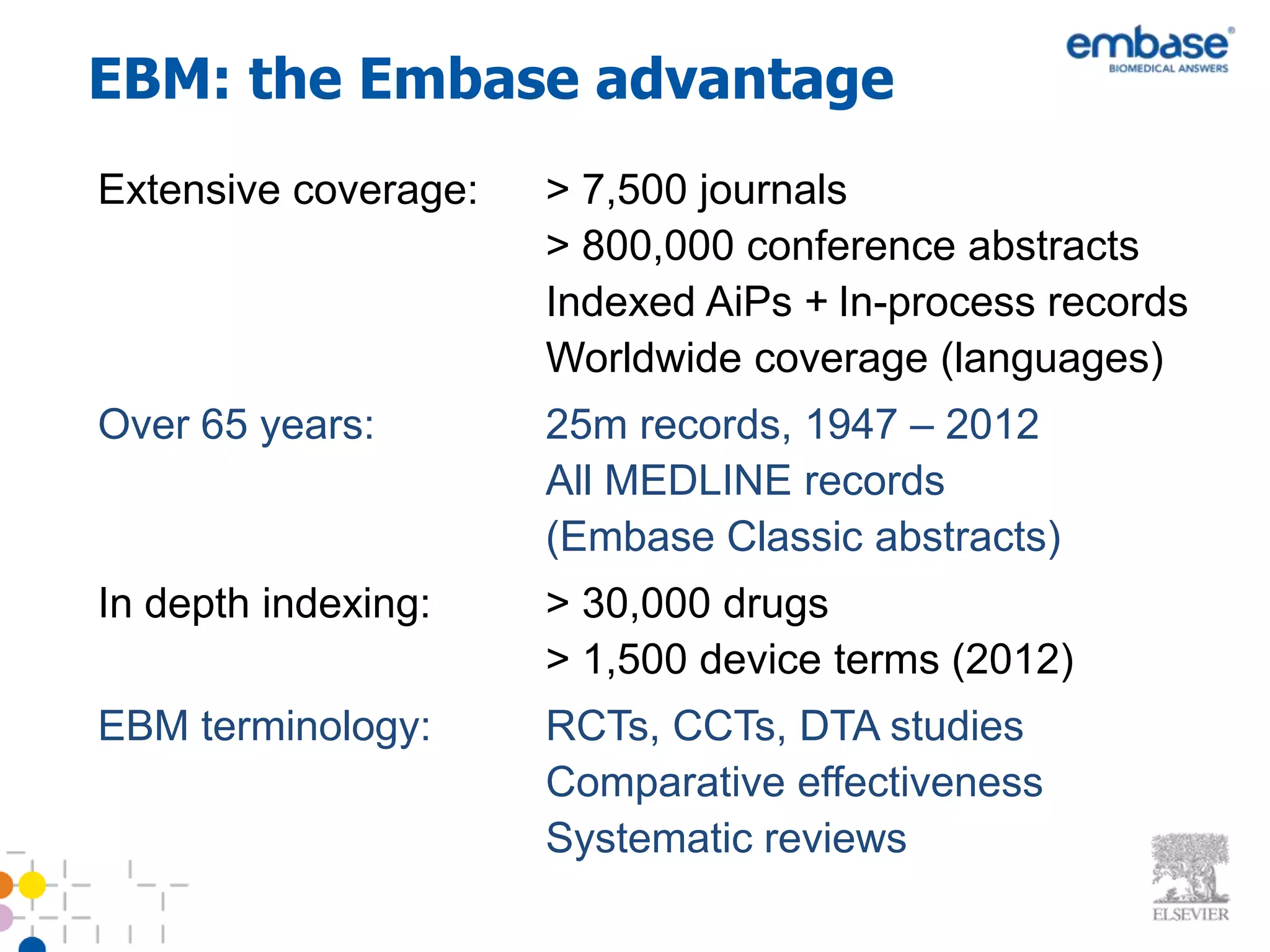
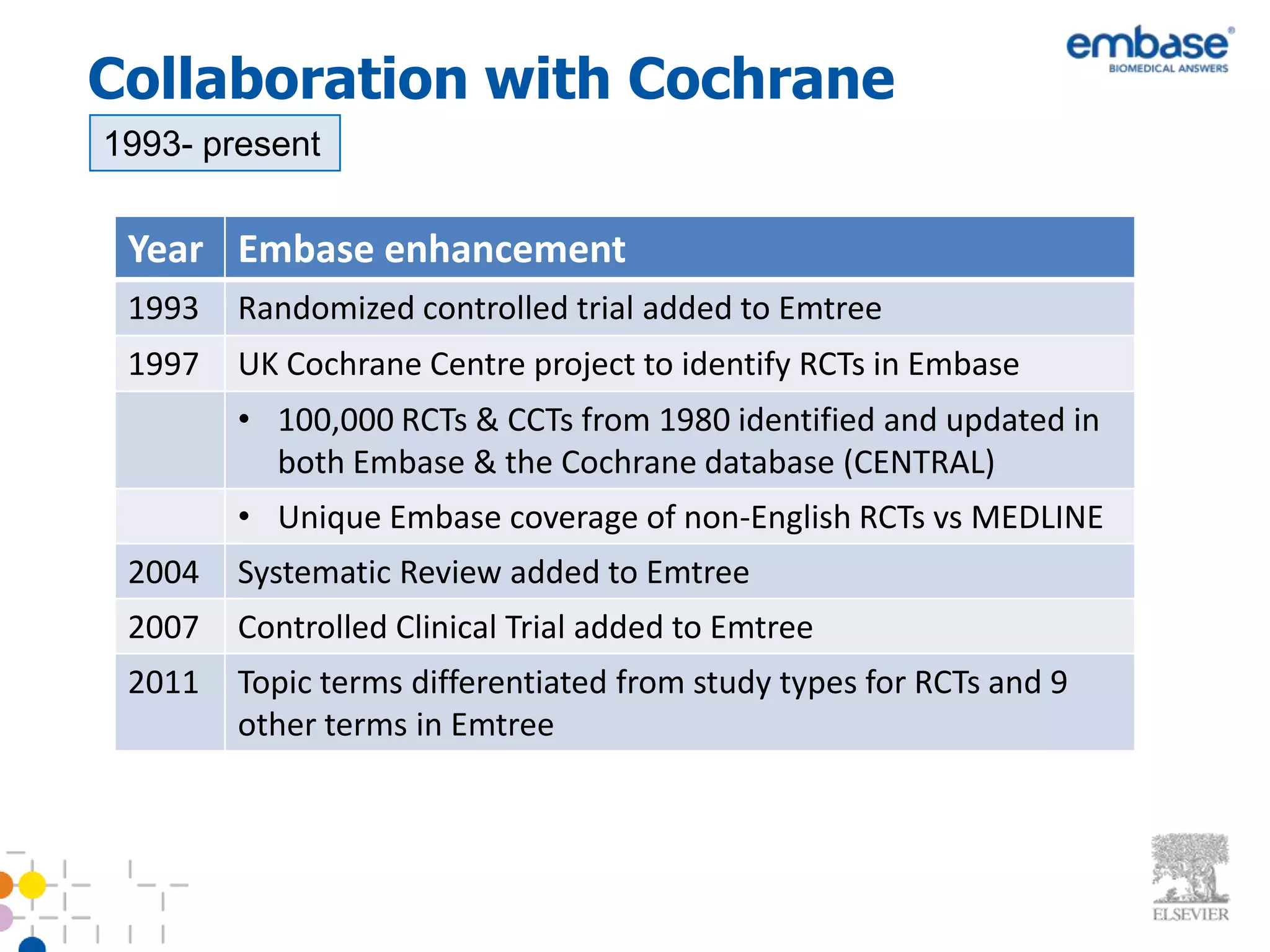

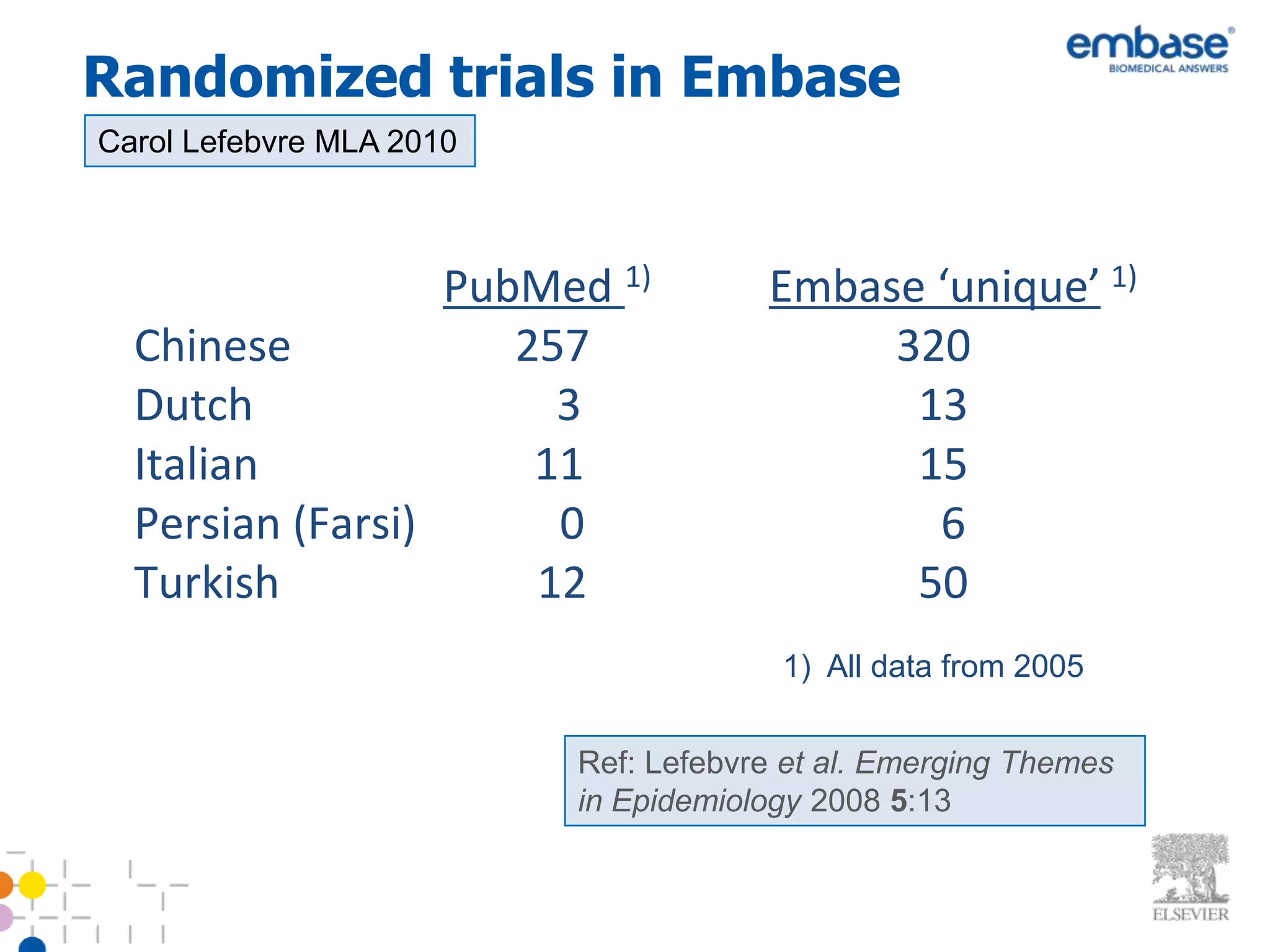
![Randomized trials in Embase
Update 2011 – 2012 data
Year 2011 2012 All years
Language Embase PubMed Embase PubMed Embase PubMed
German 95 56 28 19 9152 6267
French 41 22 26 12 4525 2780
Italian 19 11 7 5 1973 1341
Turkish 58 8 36 - 756 84
Chinese 550 364 167 86 7381 5057
Example searches:
Embase: ‘randomized controlled trial’/de AND french:la
PubMed: "randomized controlled trial"[Publication Type] AND french[language]
Search date: 22 October 2012](https://image.slidesharecdn.com/embasewebinarebm-24oct2012-121026173310-phpapp02/75/Embase-Supporting-Evidence-Based-Medicine-Webinar-24-Oct-2012-22-2048.jpg)
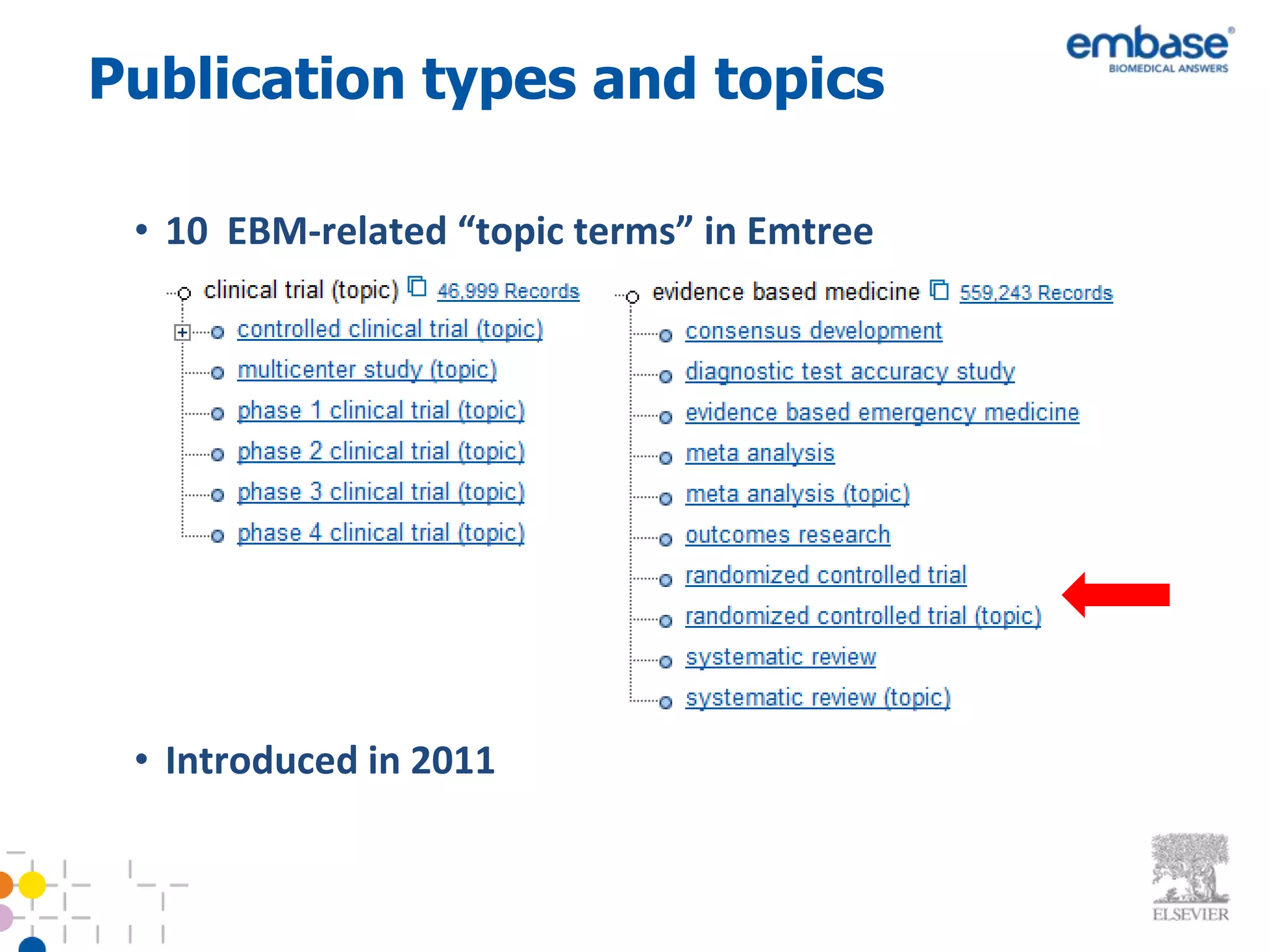
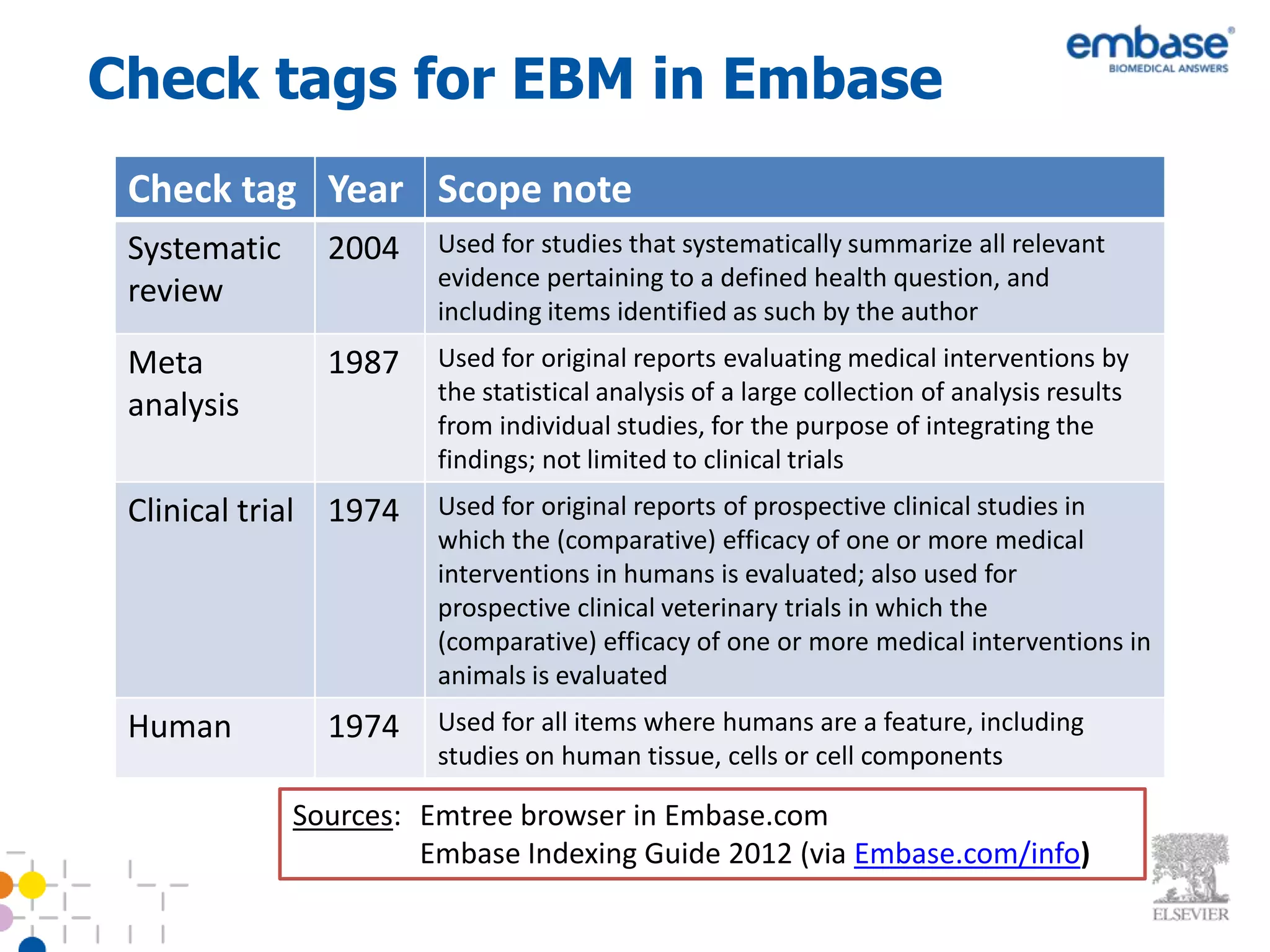
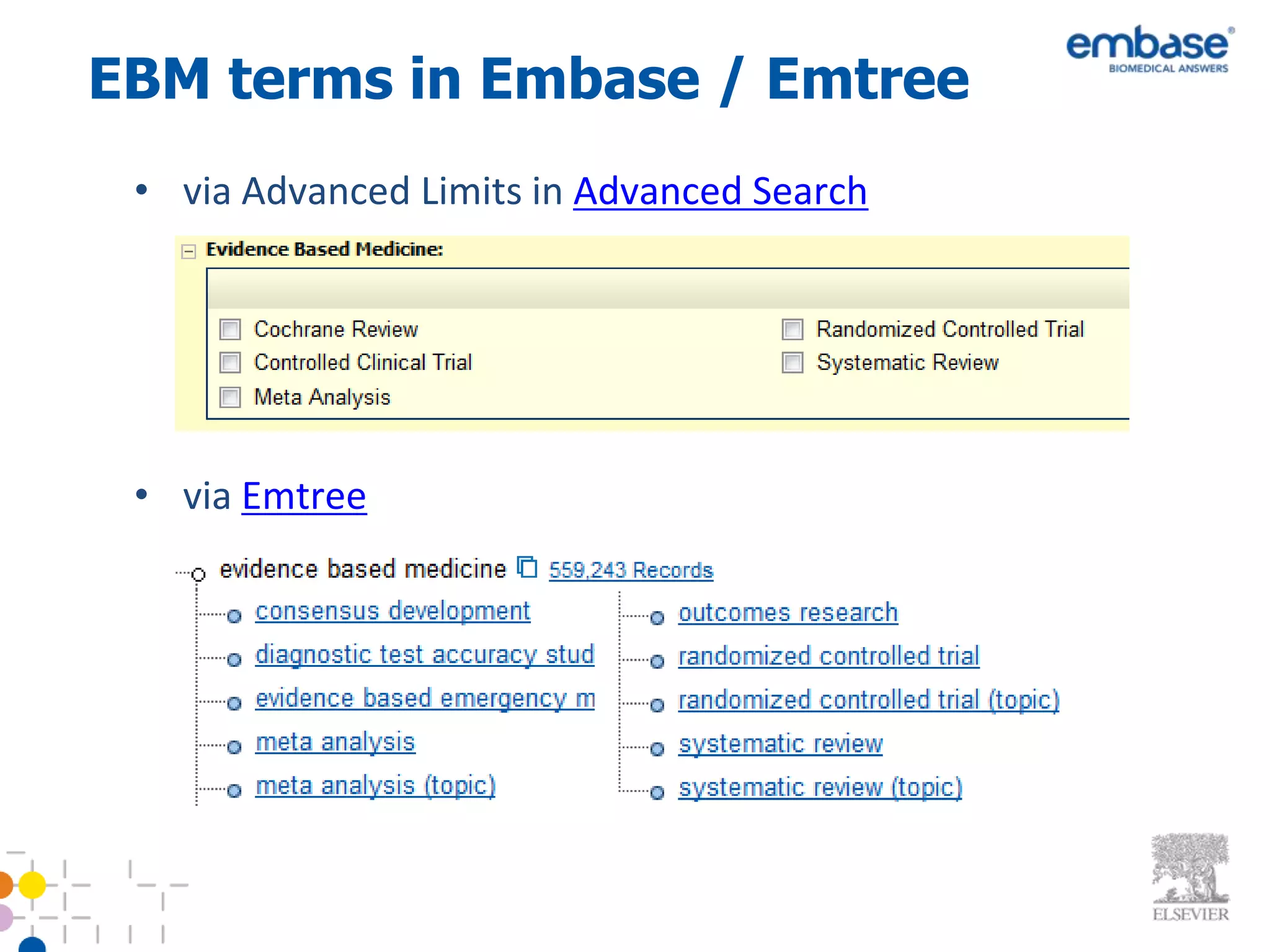
![Systematic reviews
20000
PubMed
18000
Embase
16000
14000
12000
10000
8000
6000
4000
2000
0
2004 2005 2006 2007 2008 2009 2010 2011 2012
Search strategies:
PubMed: systematic[sb]
Embase: [systematic review]/lim](https://image.slidesharecdn.com/embasewebinarebm-24oct2012-121026173310-phpapp02/75/Embase-Supporting-Evidence-Based-Medicine-Webinar-24-Oct-2012-26-2048.jpg)
![Systematic reviews
20000
15000
Search strategy decoded: Embase
10000
systematic review/de
5000
(see check tag list for scope note)
0
Search strategy decoded: PubMed
(systematic review [ti] OR meta-analysis [pt] OR meta-analysis [ti] OR systematic literature review [ti] OR (systematic
review [tiab] AND review [pt]) OR consensus development conference [pt] OR practice guideline [pt] OR cochrane
database syst rev [ta] OR acp journal club [ta] OR health technol assess [ta] OR evid rep technol assess summ [ta]) OR
((evidence based[ti] OR evidence-based medicine [mh] OR best practice* [ti] OR evidence synthesis [tiab]) AND (review
[pt] OR diseases category[mh] OR behavior and behavior mechanisms [mh] OR therapeutics [mh] OR evaluation
studies[pt] OR validation studies[pt] OR guideline [pt])) OR ((systematic [tw] OR systematically [tw] OR critical [tiab] OR
(study selection [tw]) OR (predetermined [tw] OR inclusion [tw] AND criteri* [tw]) OR exclusion criteri* [tw] OR main
outcome measures [tw] OR standard of care [tw] OR standards of care [tw]) AND (survey [tiab] OR surveys [tiab] OR
overview* [tw] OR review [tiab] OR reviews [tiab] OR search* [tw] OR handsearch [tw] OR analysis [tiab] OR critique
[tiab] OR appraisal [tw] OR (reduction [tw]AND (risk [mh] OR risk [tw]) AND (death OR recurrence))) AND (literature [tiab]
OR articles [tiab] OR publications [tiab] OR publication [tiab] OR bibliography [tiab] OR bibliographies [tiab] OR published
[tiab] OR unpublished [tw] OR citation [tw] OR citations [tw] OR database [tiab] OR internet [tiab] OR textbooks [tiab] OR
references [tw] OR scales [tw] OR papers [tw] OR datasets [tw] OR trials [tiab] OR meta-analy* [tw] OR (clinical [tiab] AND
studies [tiab]) OR treatment outcome [mh] OR treatment outcome [tw])) NOT (letter [pt] OR newspaper article [pt] OR
comment [pt])](https://image.slidesharecdn.com/embasewebinarebm-24oct2012-121026173310-phpapp02/75/Embase-Supporting-Evidence-Based-Medicine-Webinar-24-Oct-2012-27-2048.jpg)
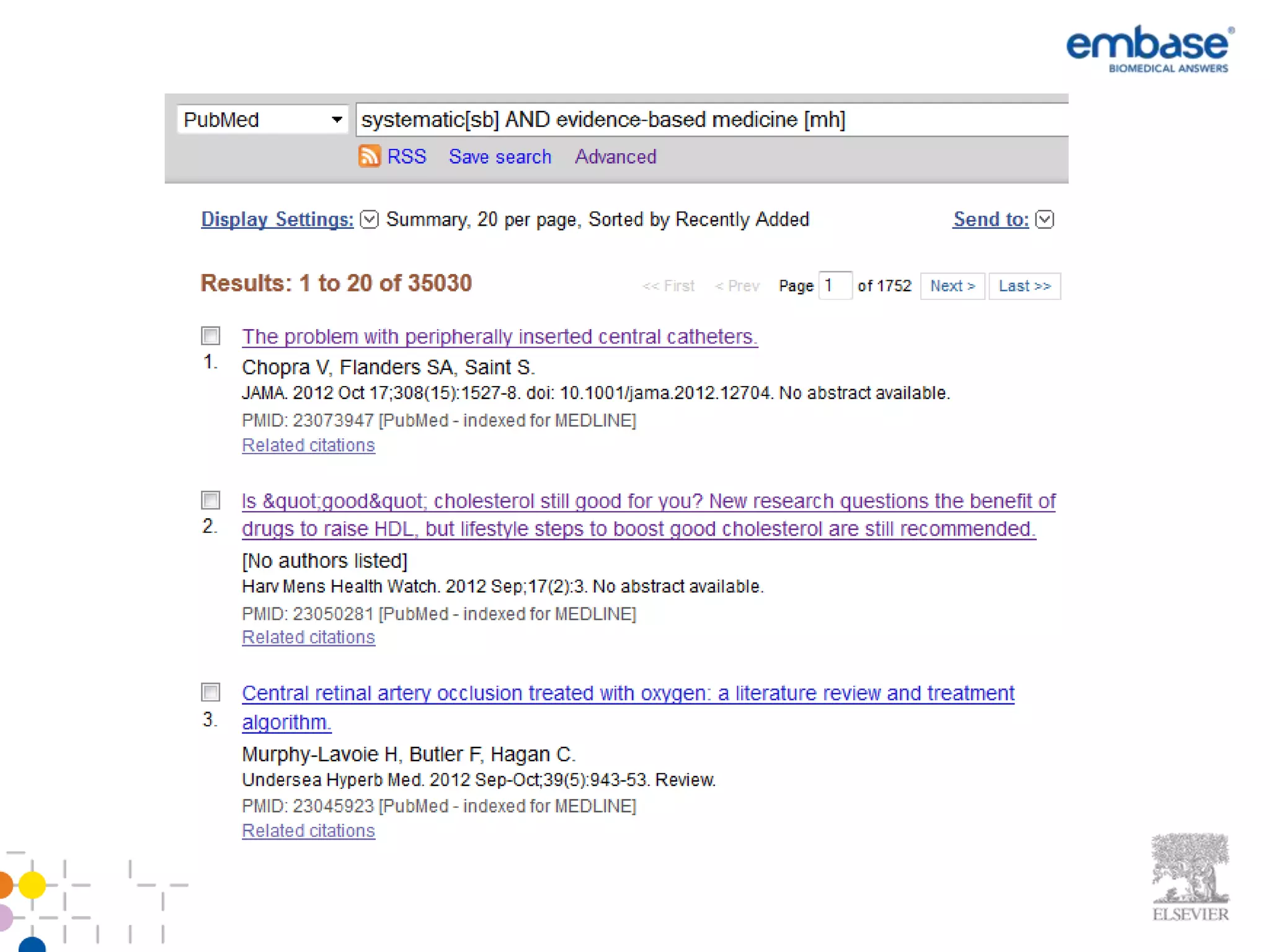
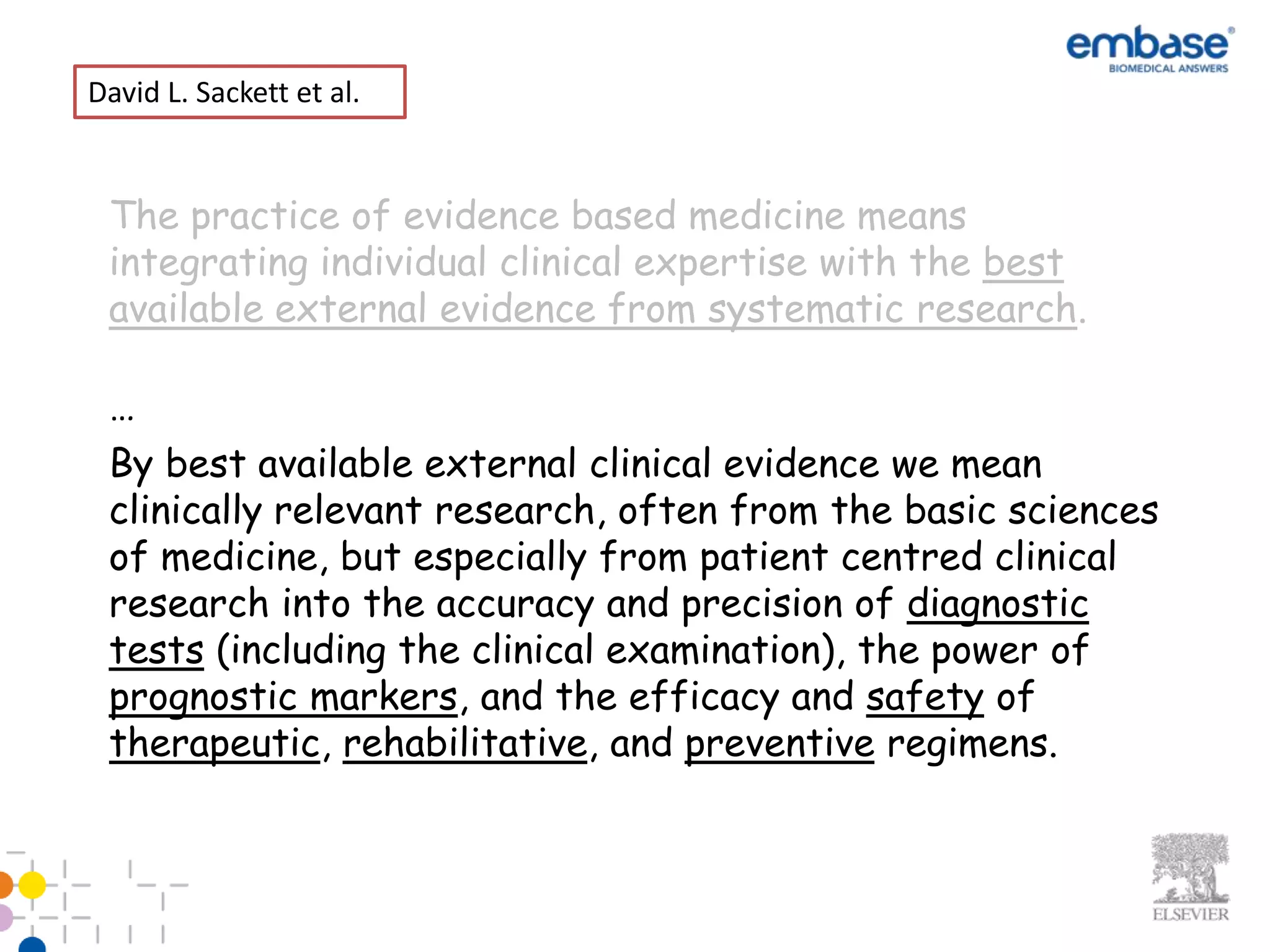
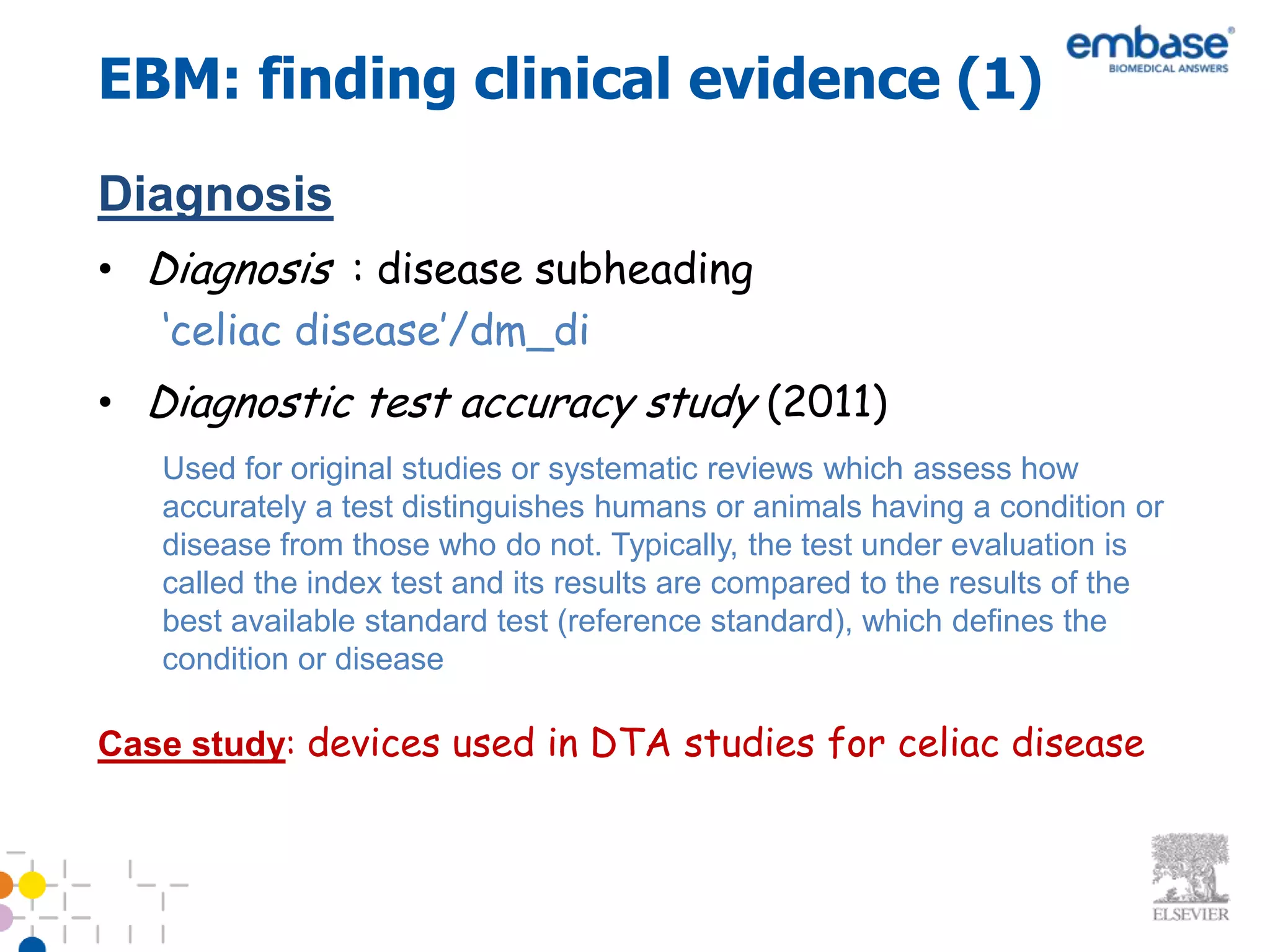
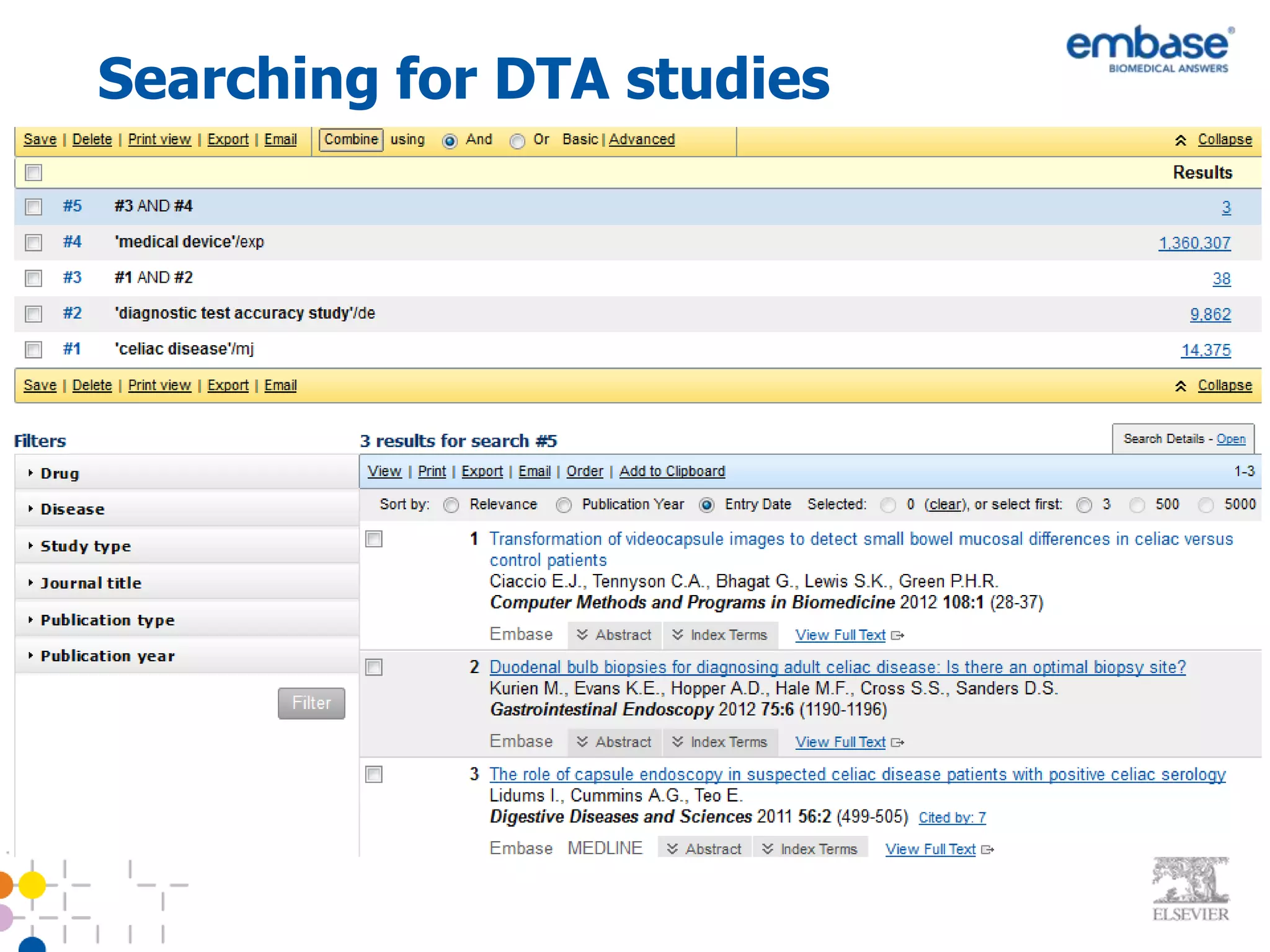
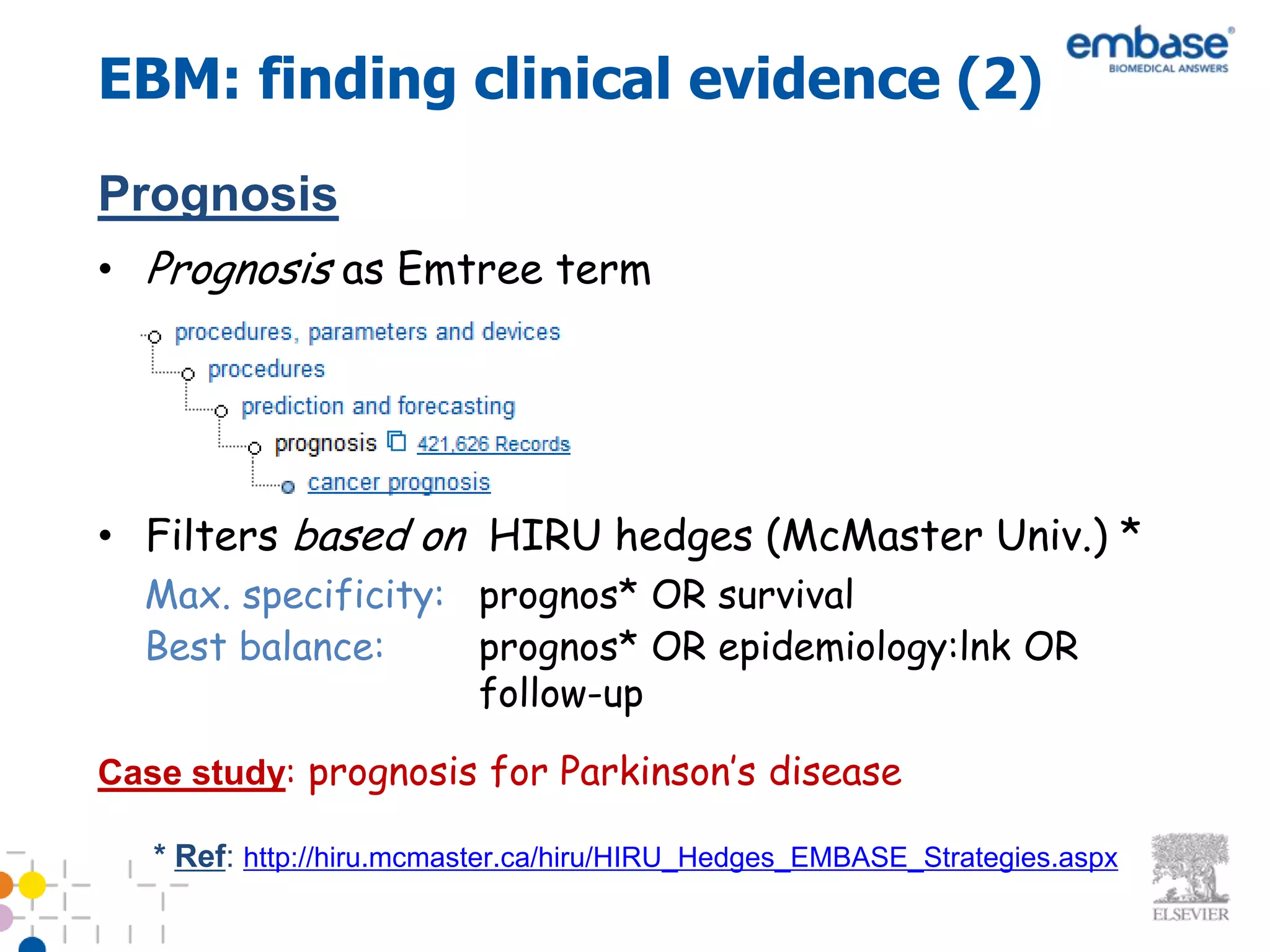
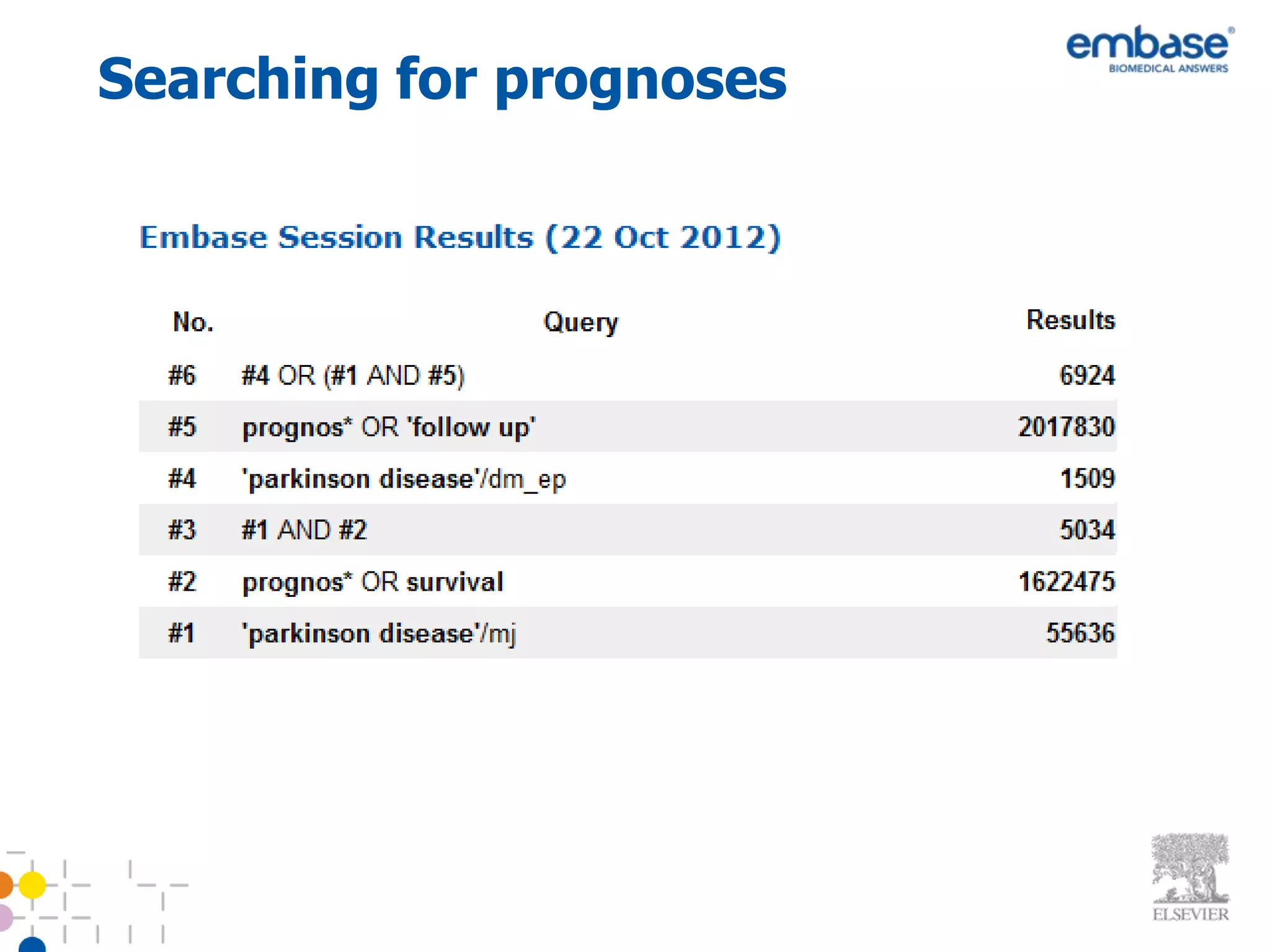
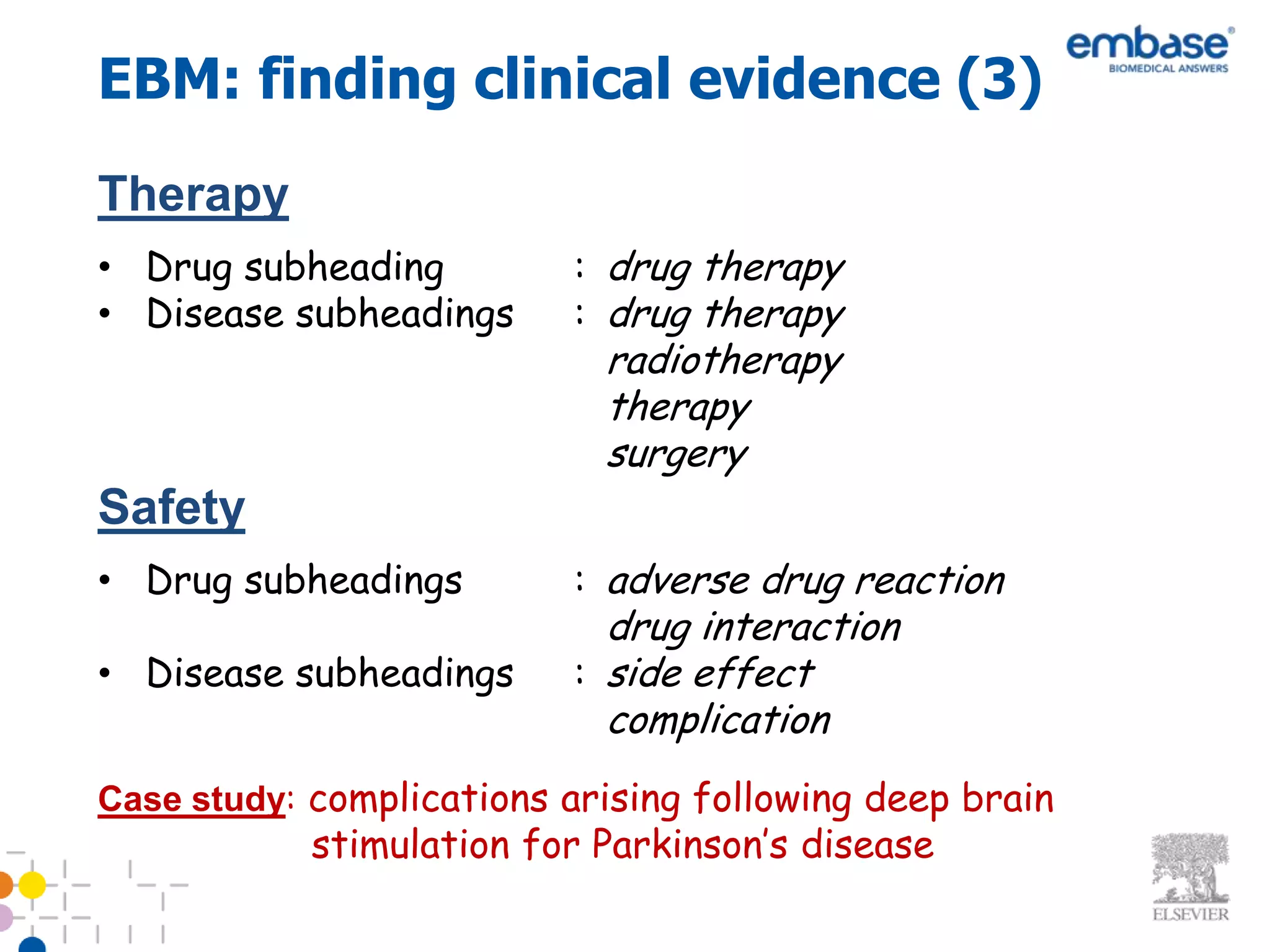
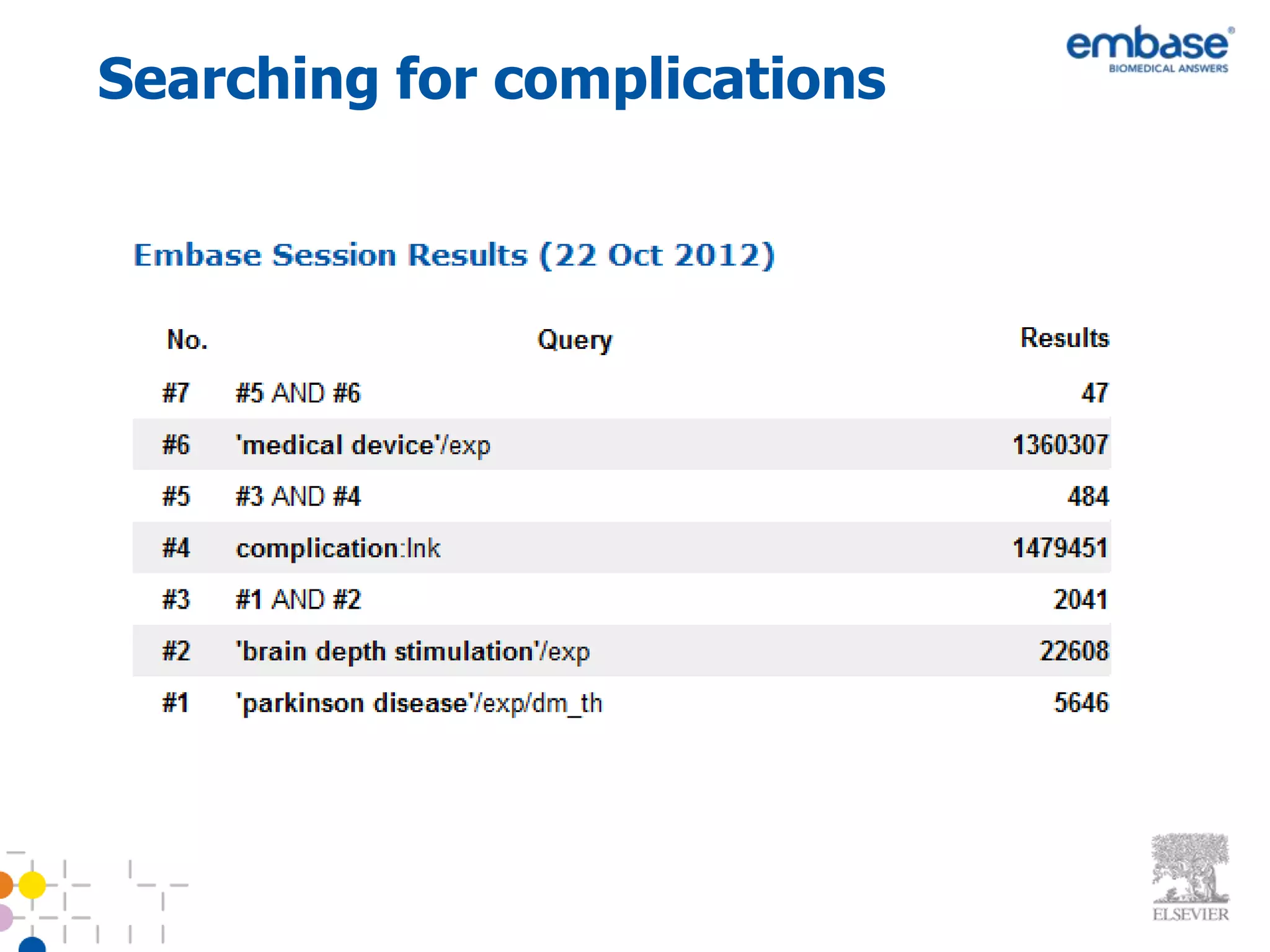
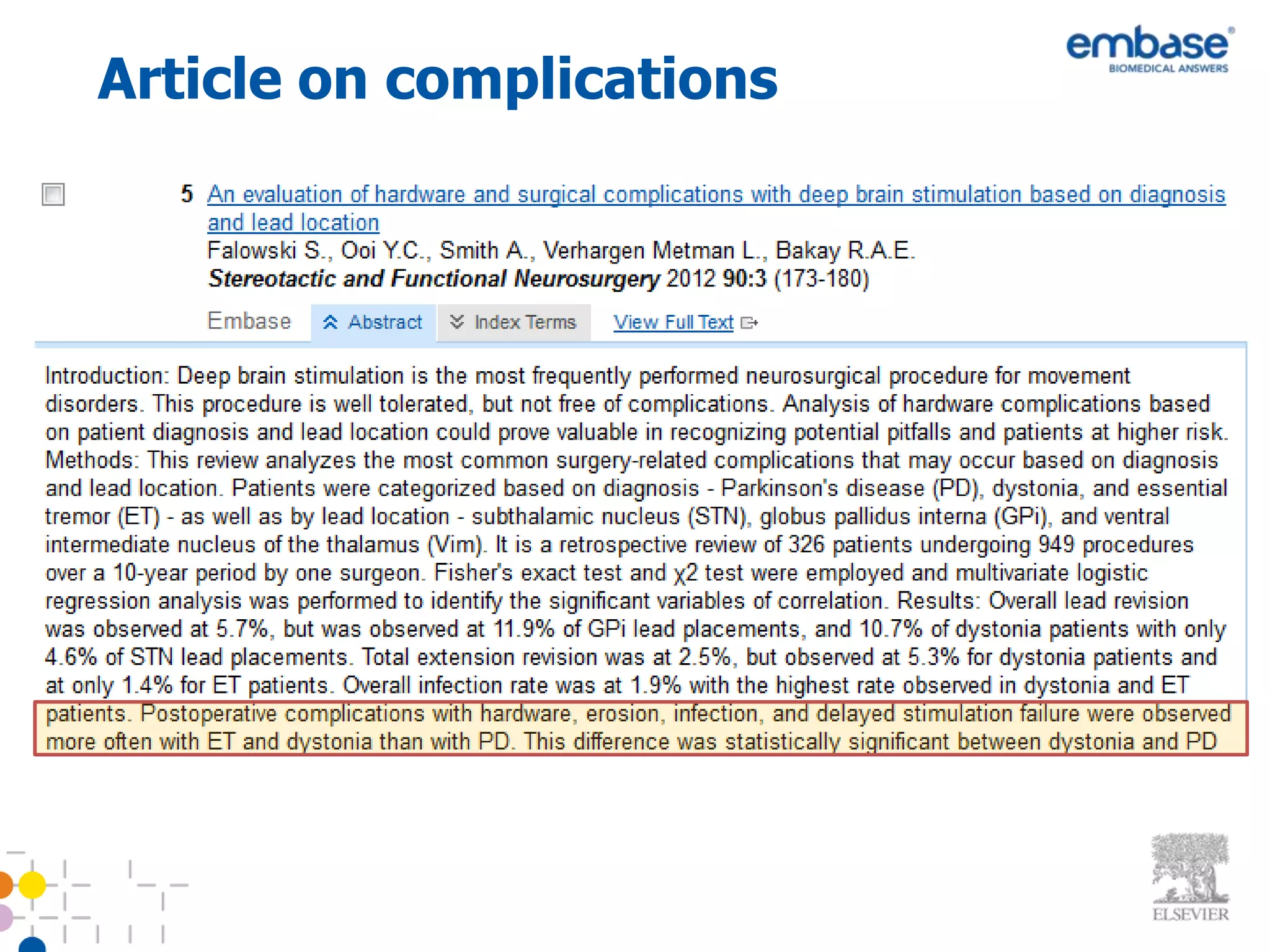
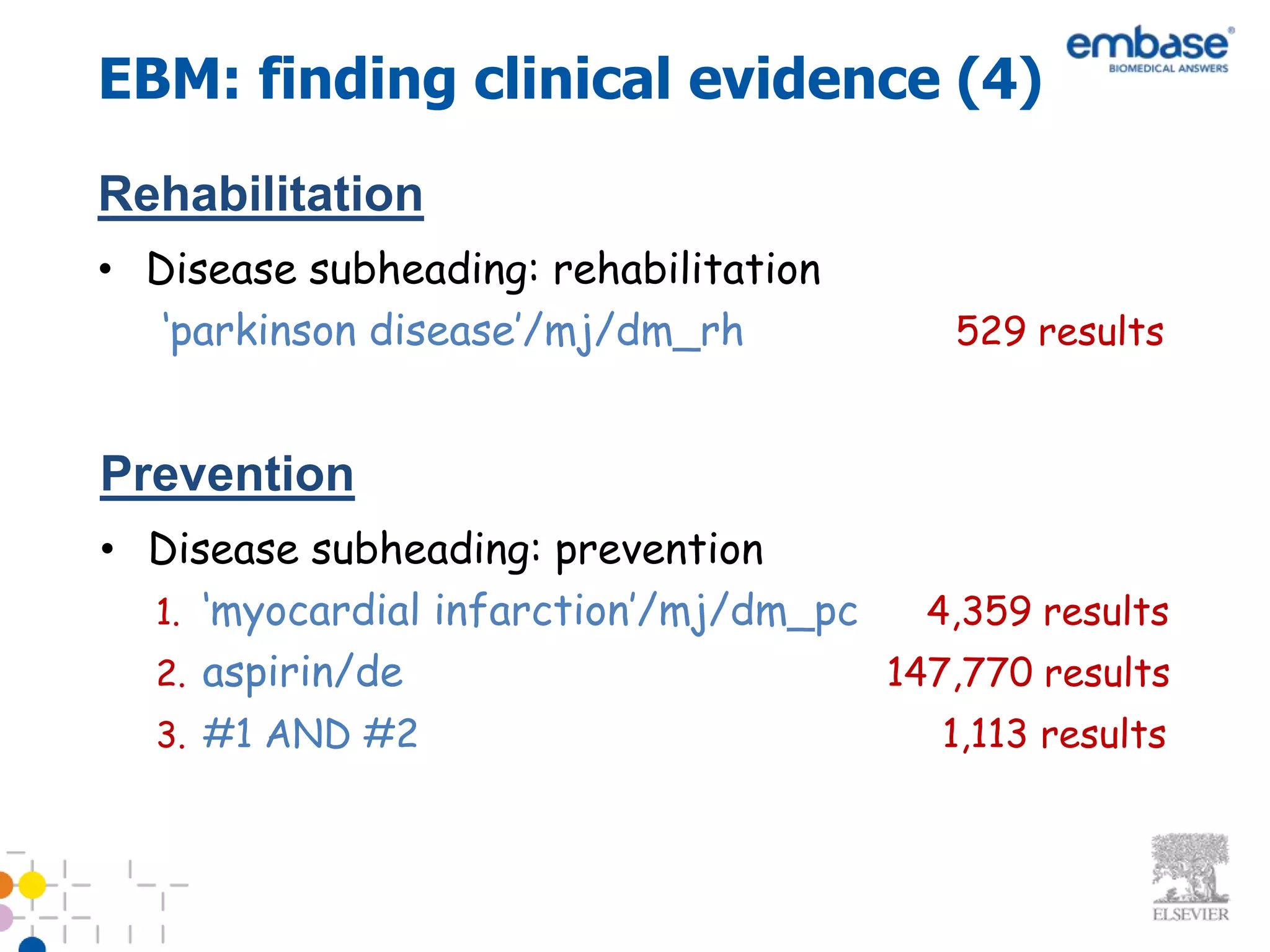
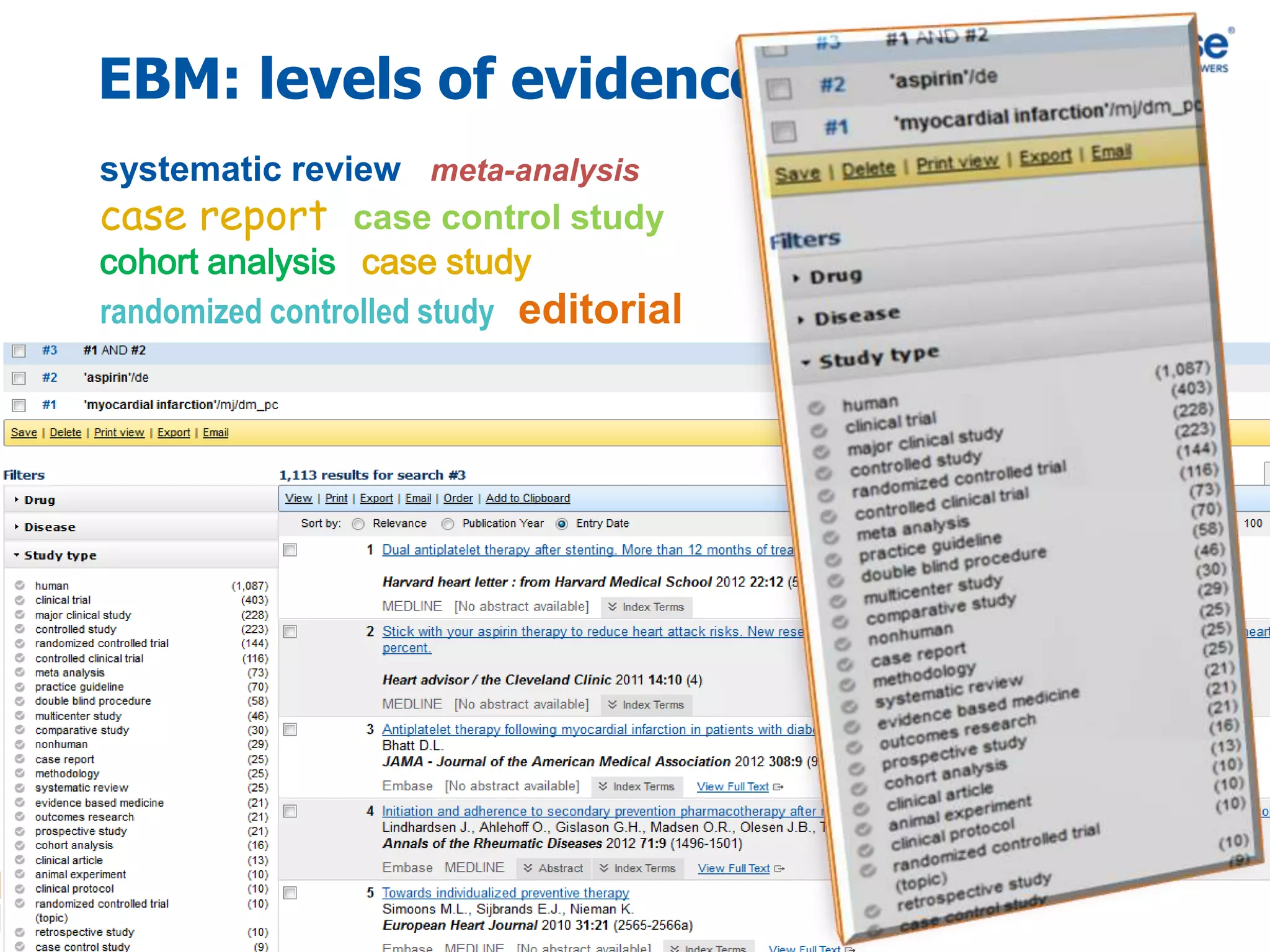
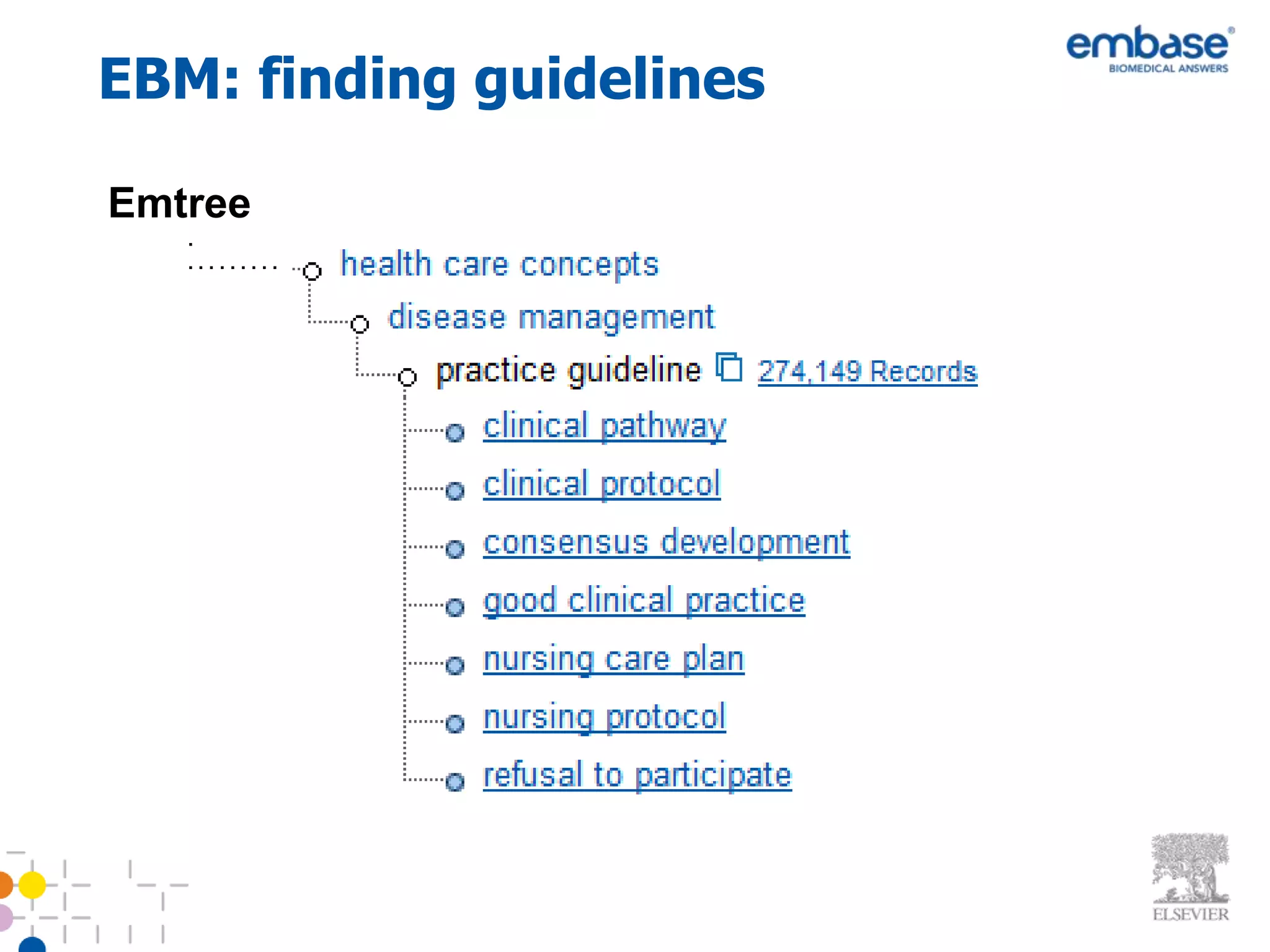
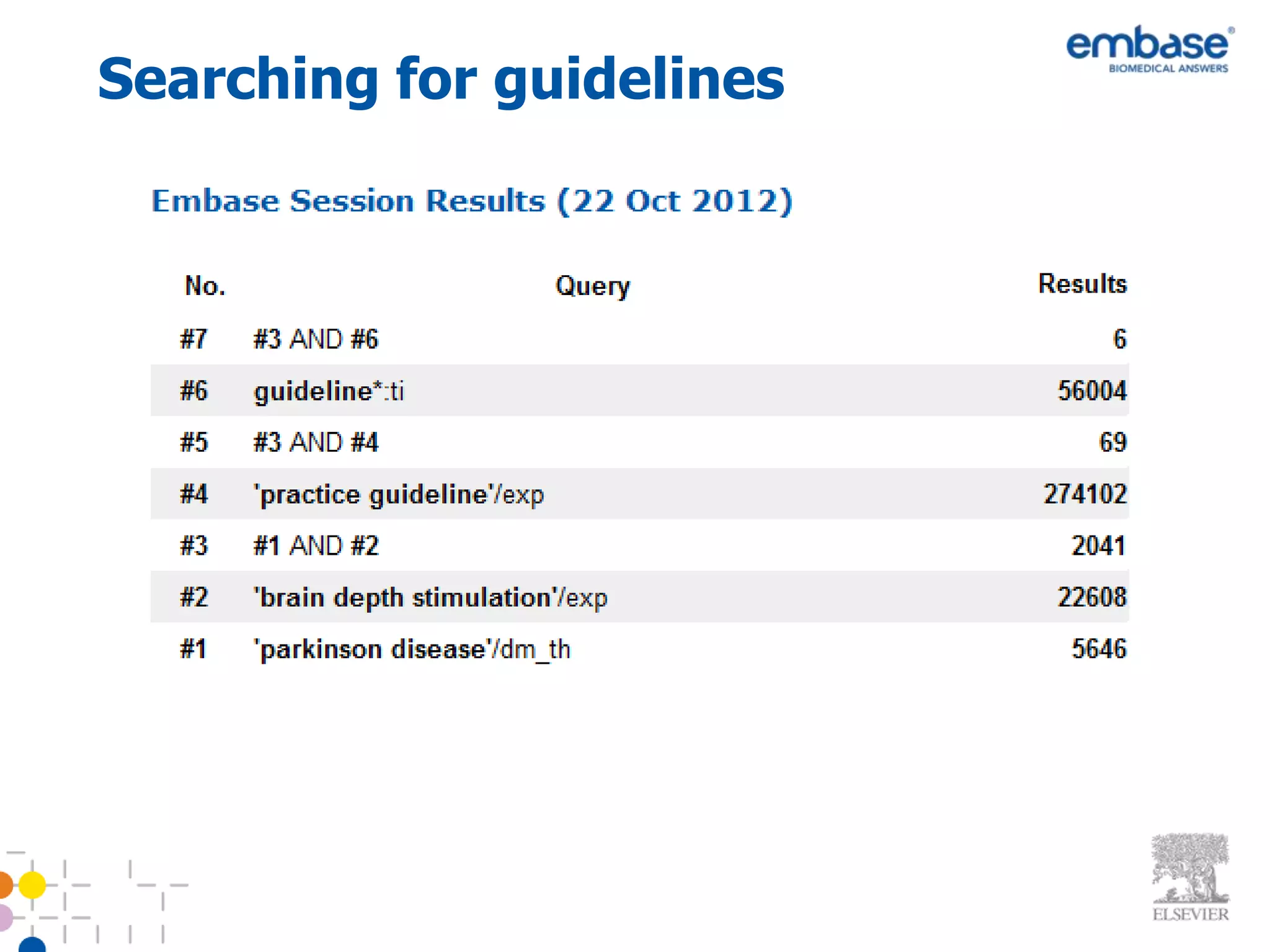
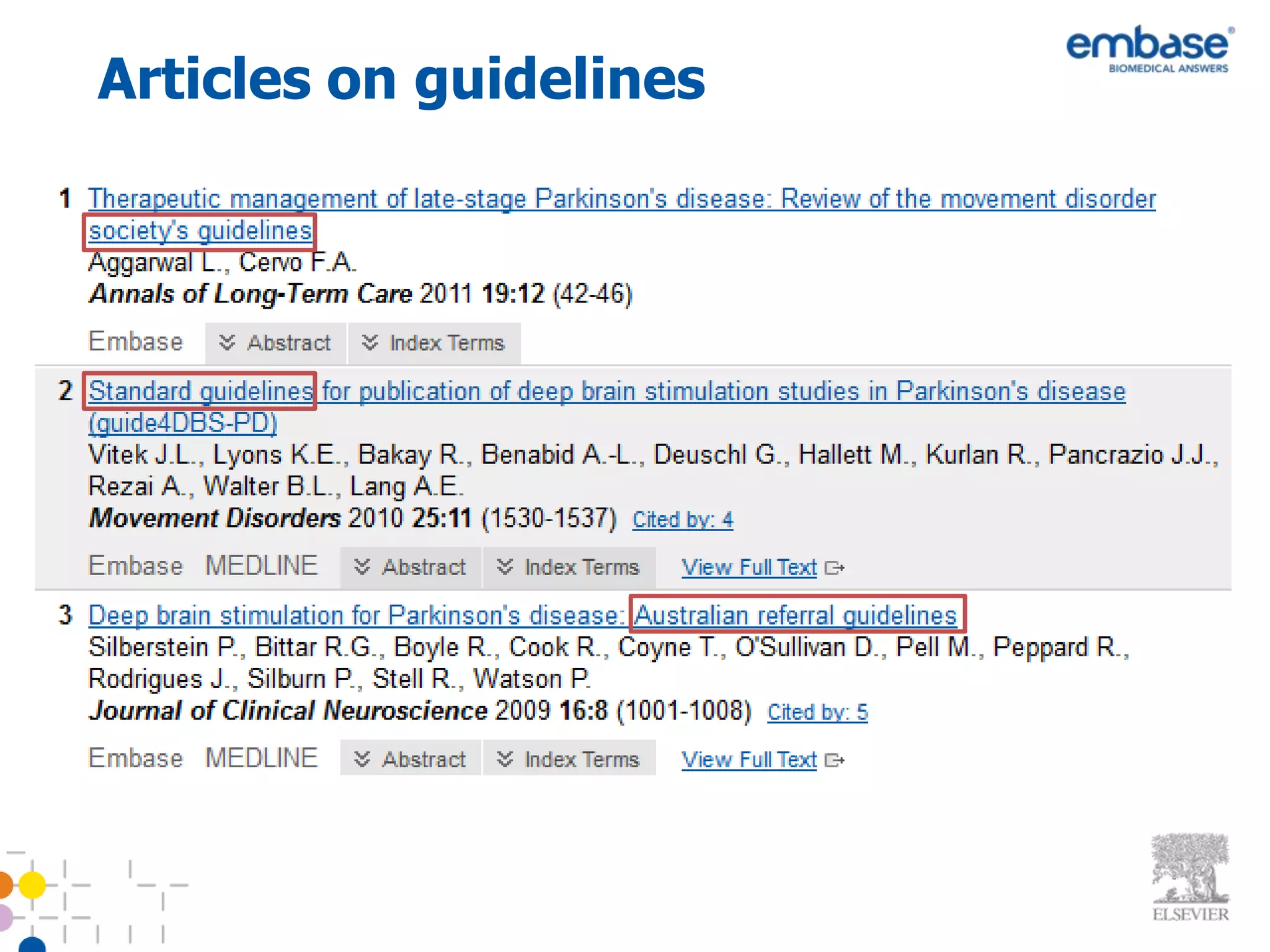
![EBM: other approaches
Comparative Effectiveness Research (CER)
• Emtree term: comparative effectiveness
Added in 2010; approx. 2000 results/year from 2011
Cochrane Database of Systematic Reviews
• Advanced limit: [cochrane review]/lim
Over 11,000 reviews included in Embase since 2000](https://image.slidesharecdn.com/embasewebinarebm-24oct2012-121026173310-phpapp02/75/Embase-Supporting-Evidence-Based-Medicine-Webinar-24-Oct-2012-42-2048.jpg)
